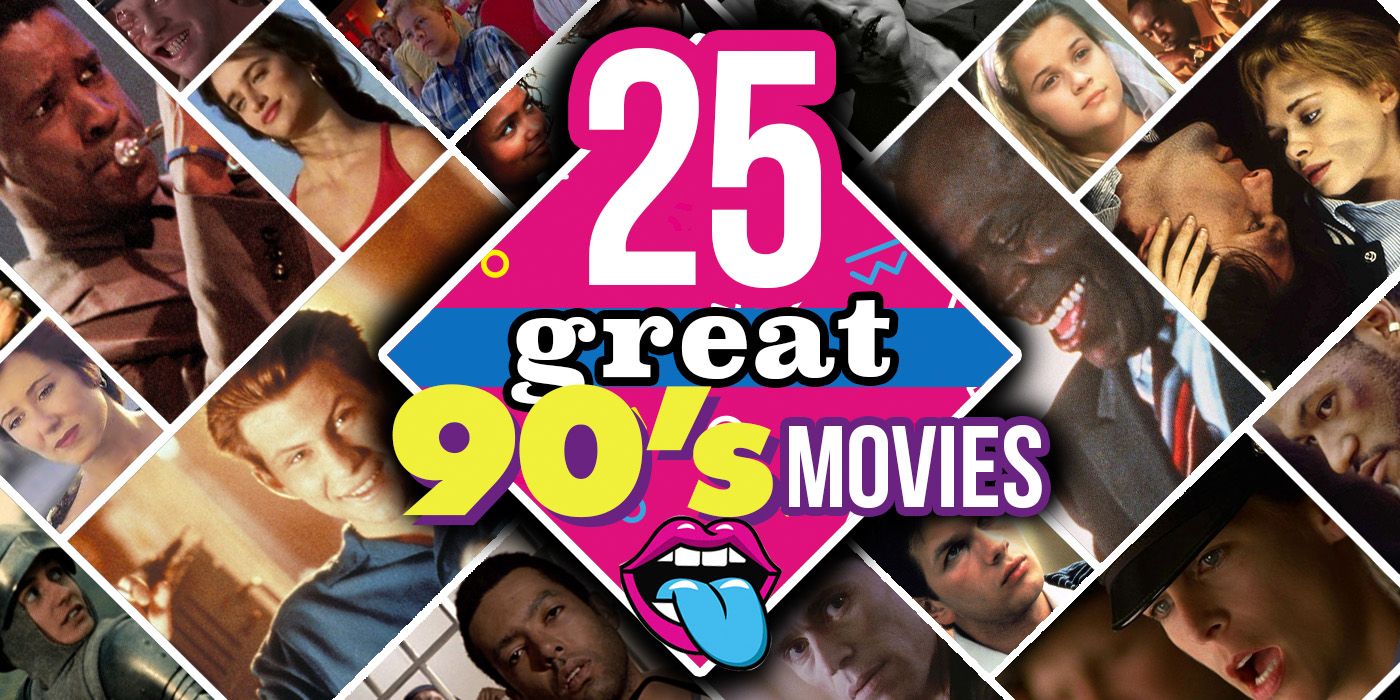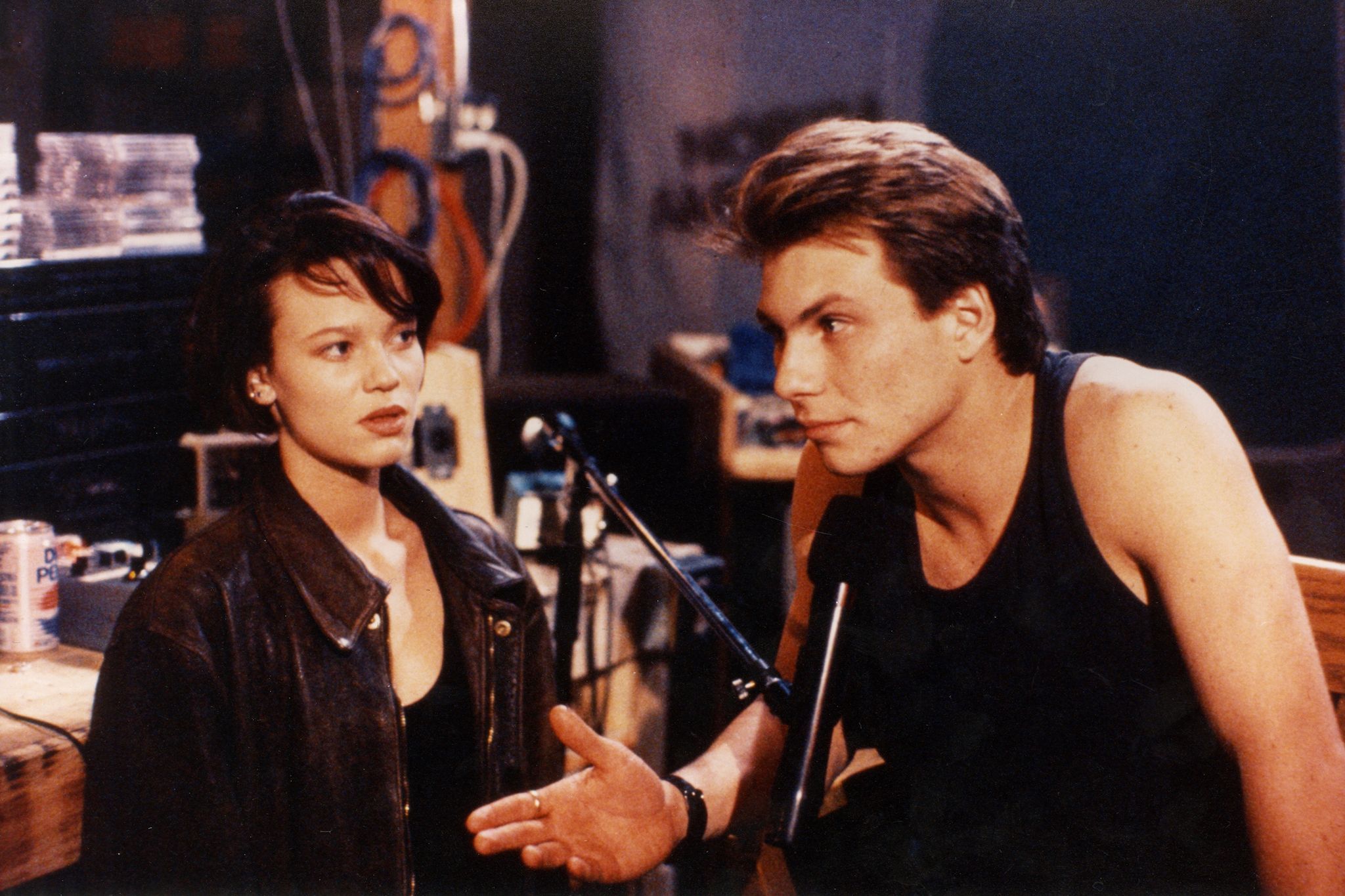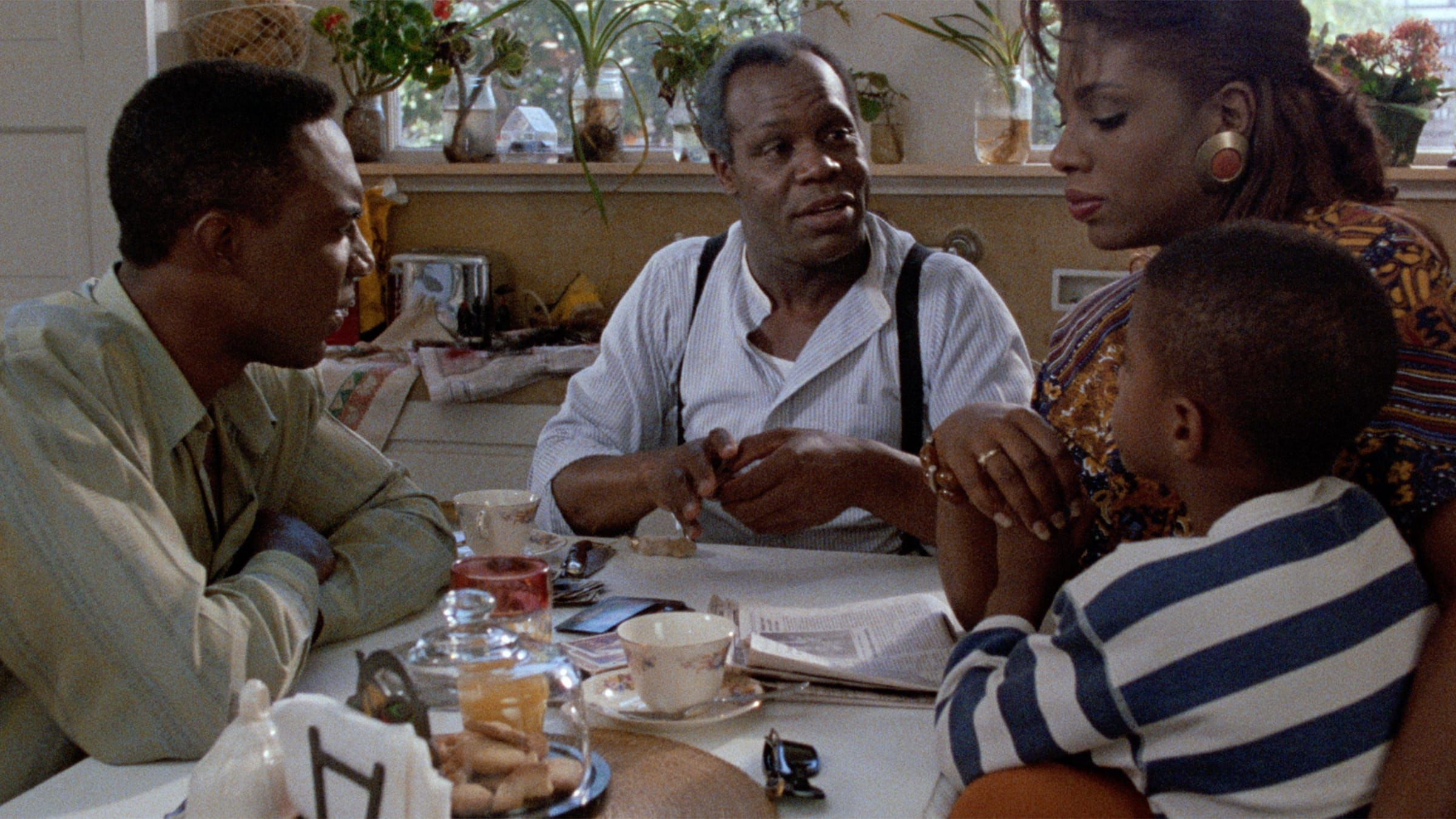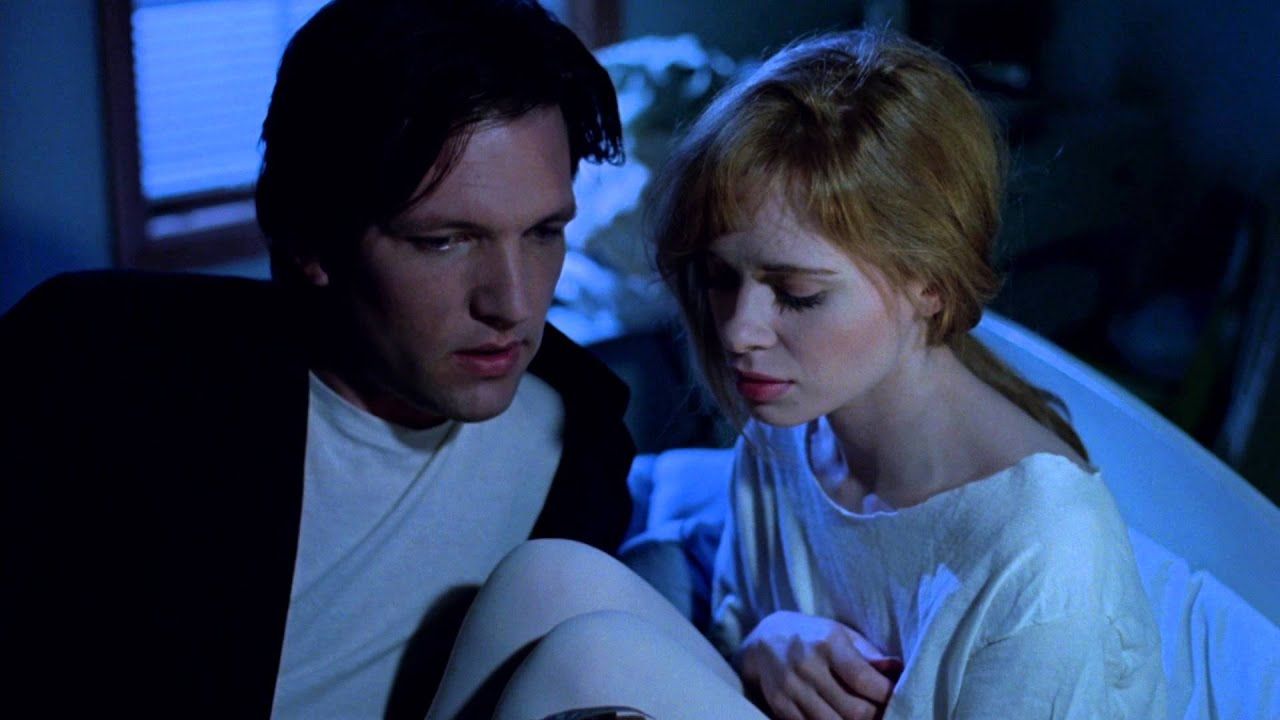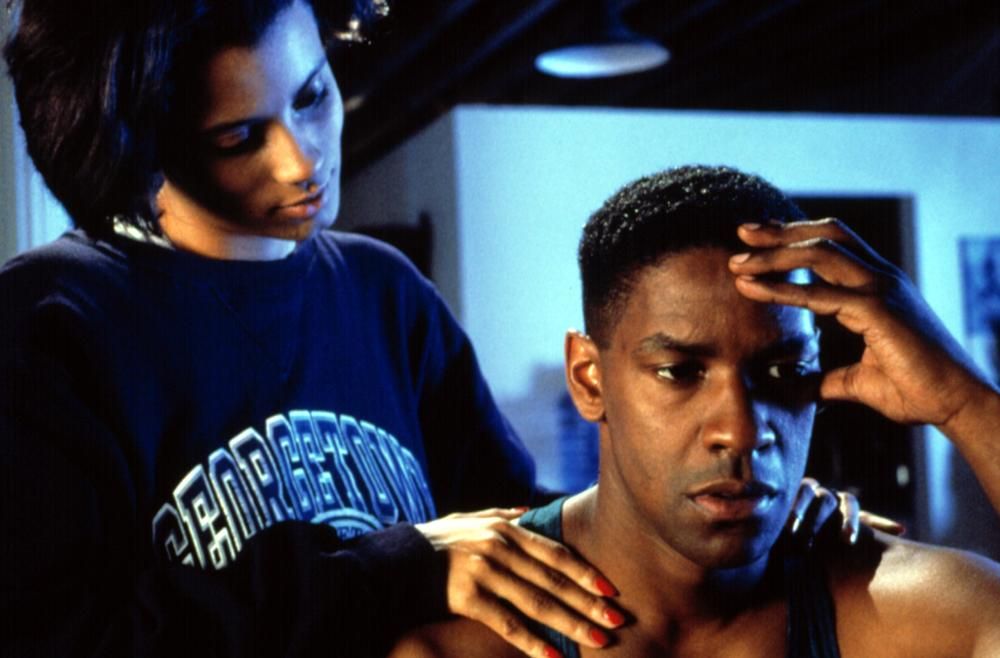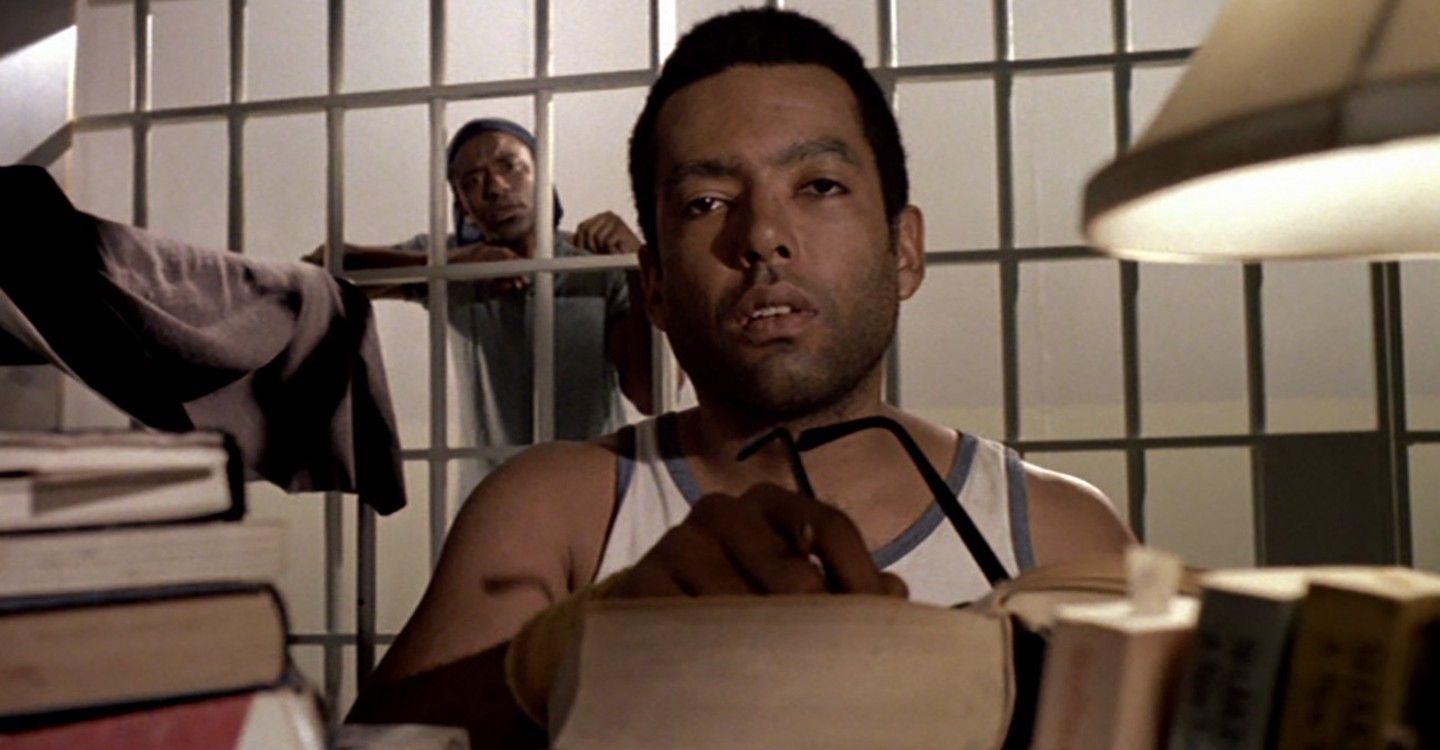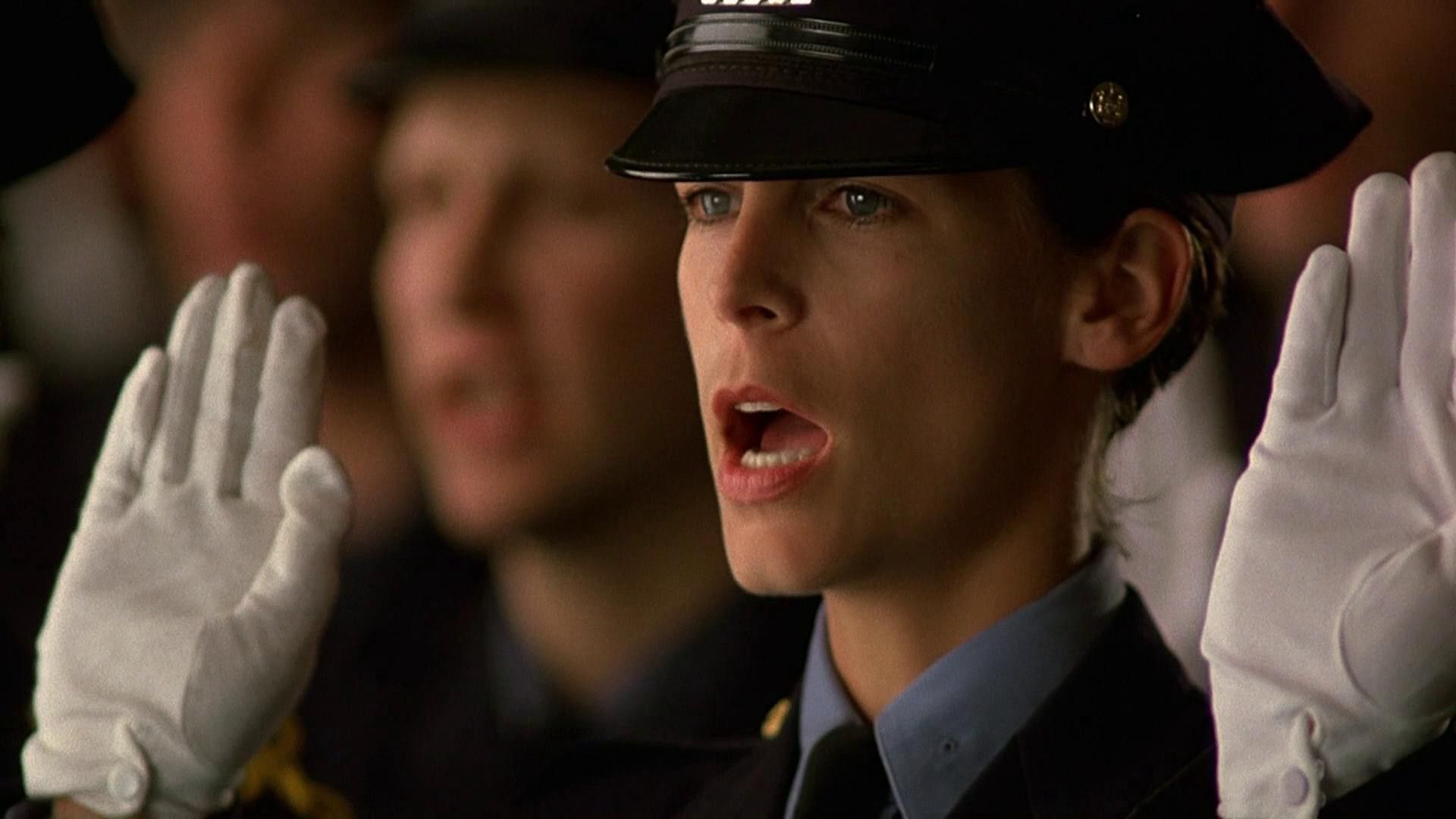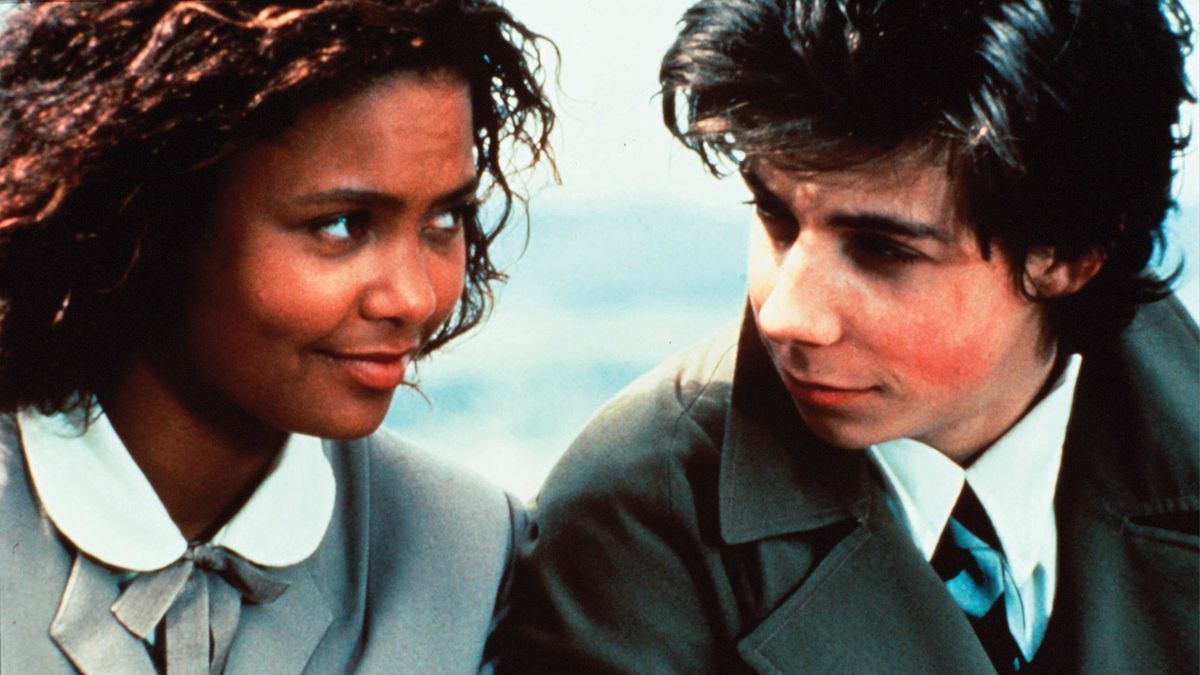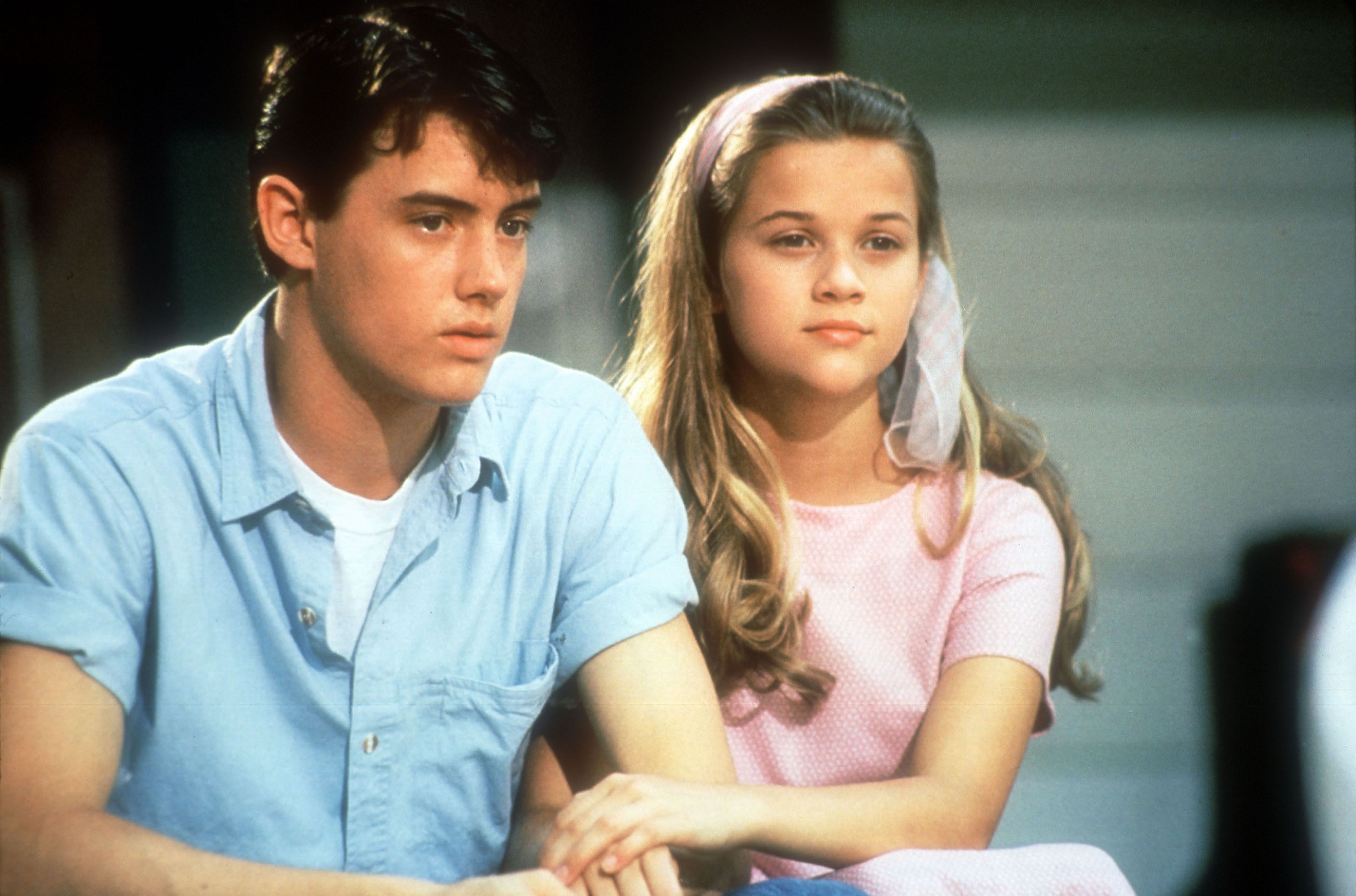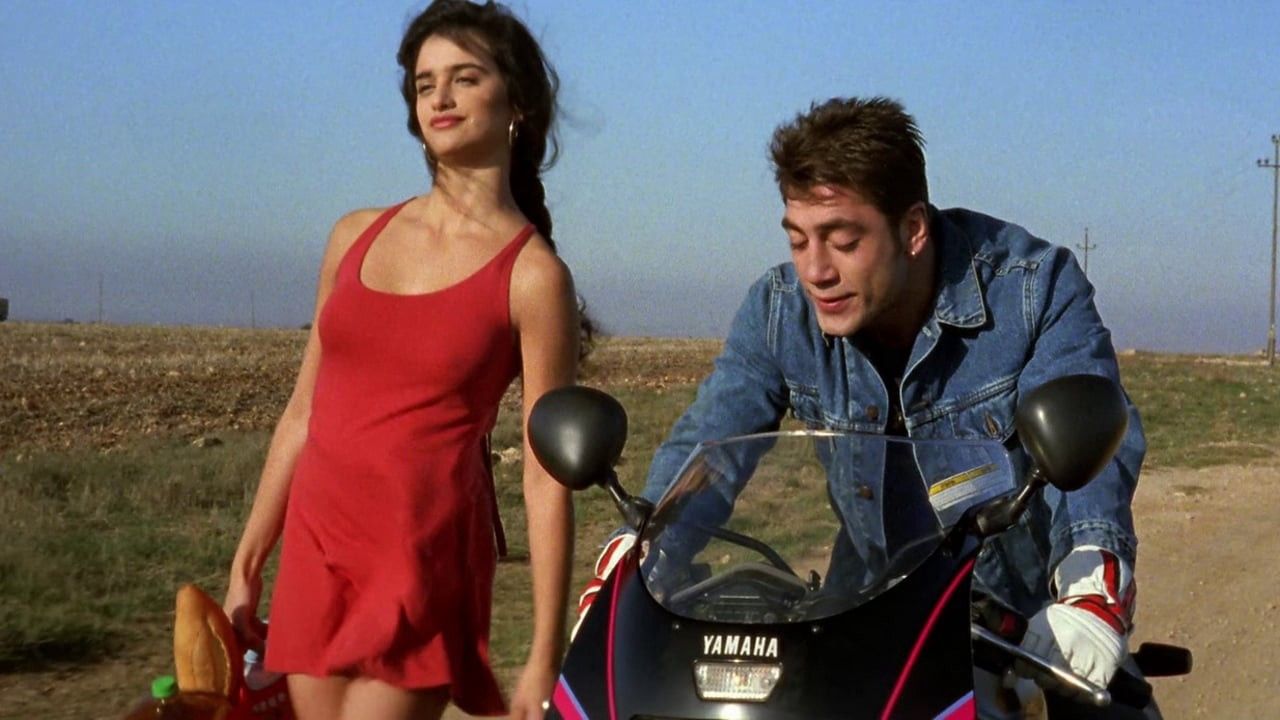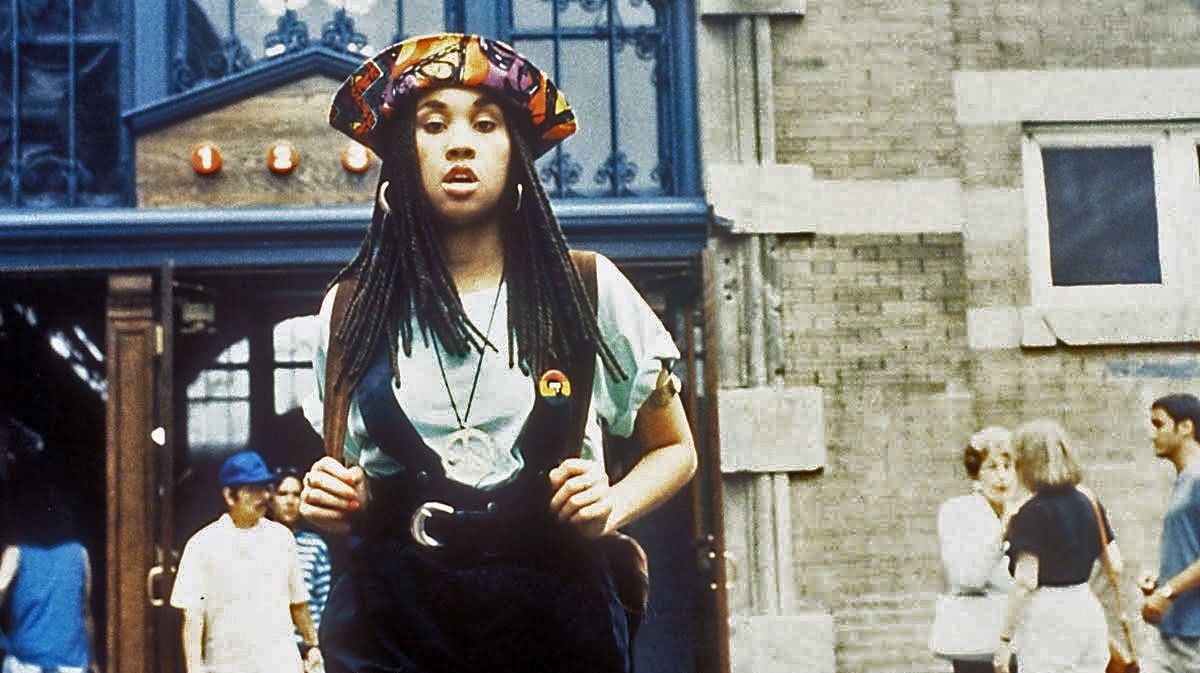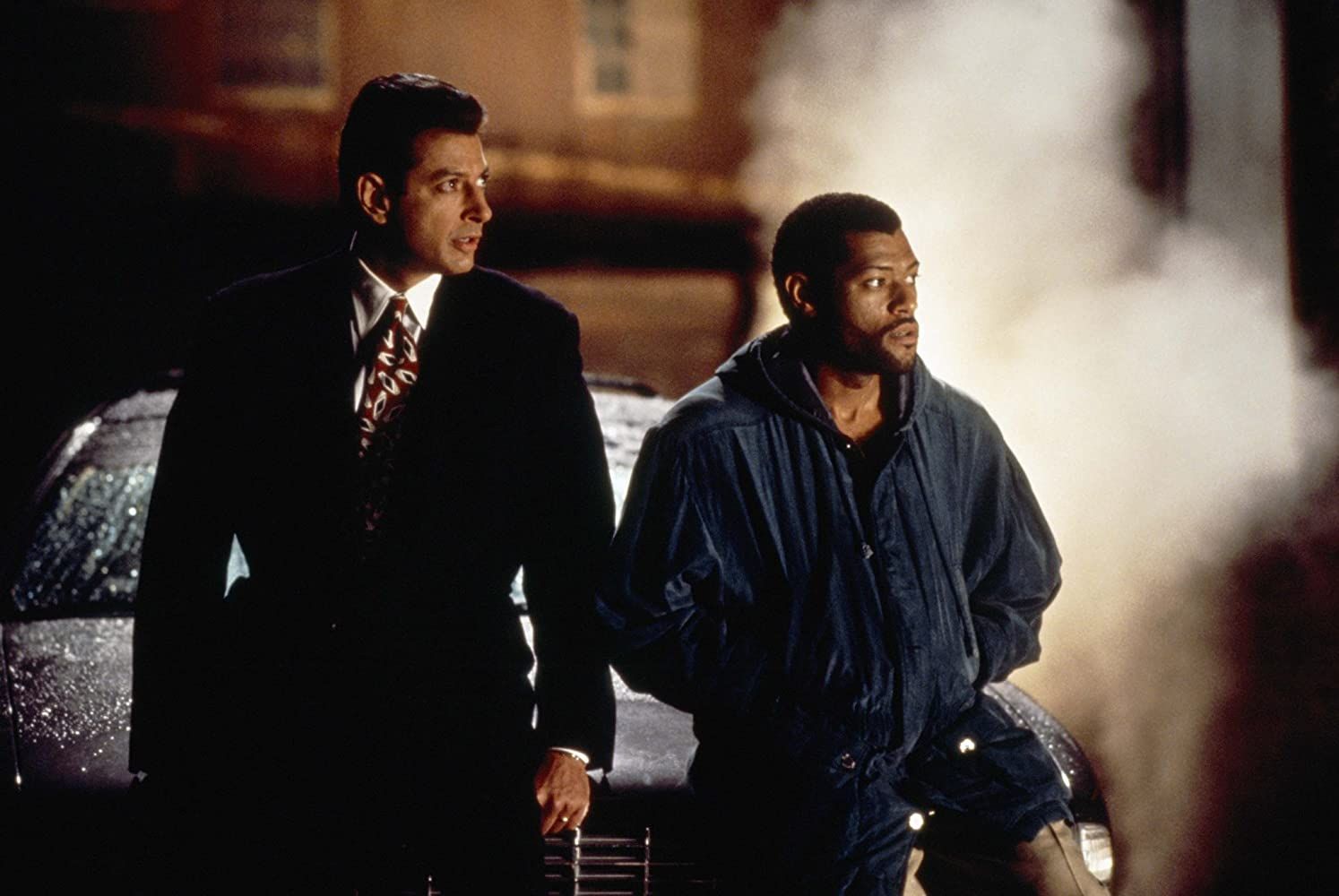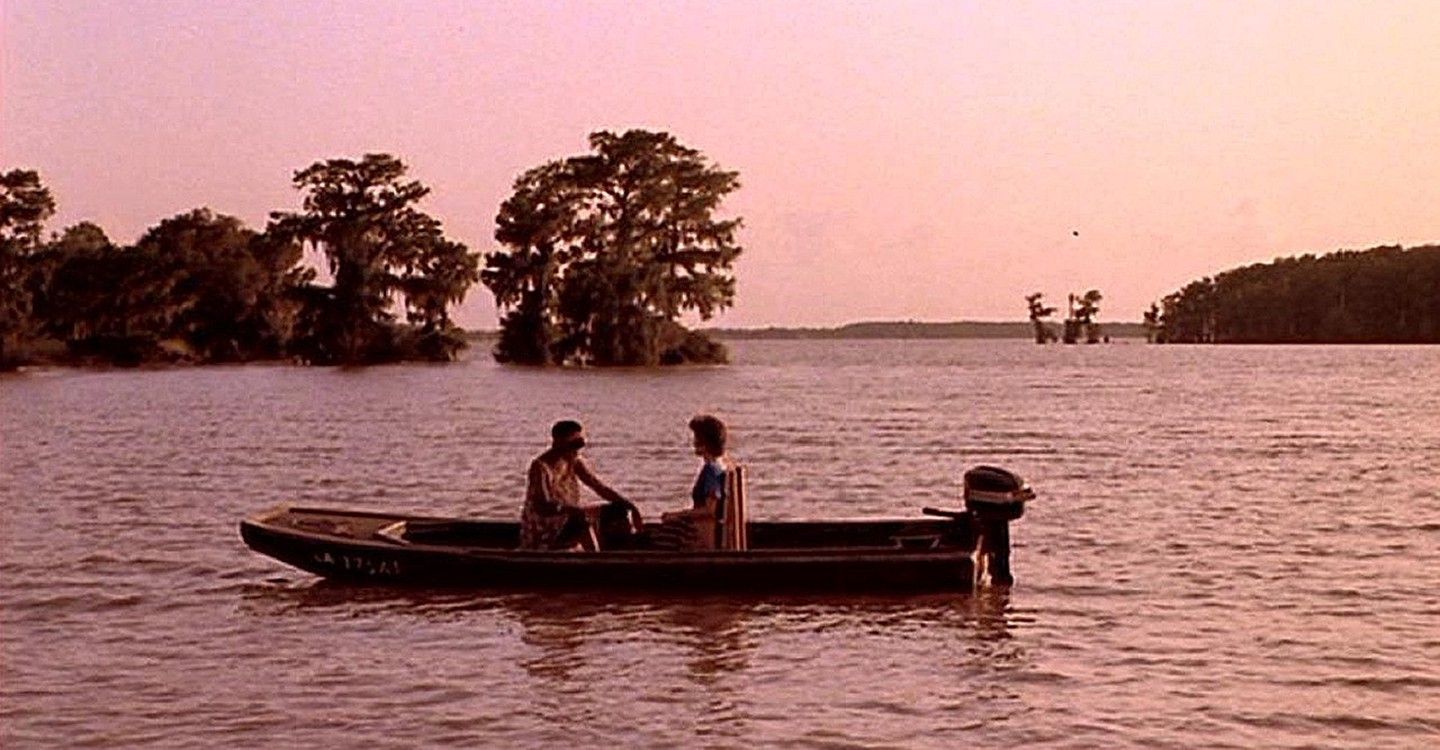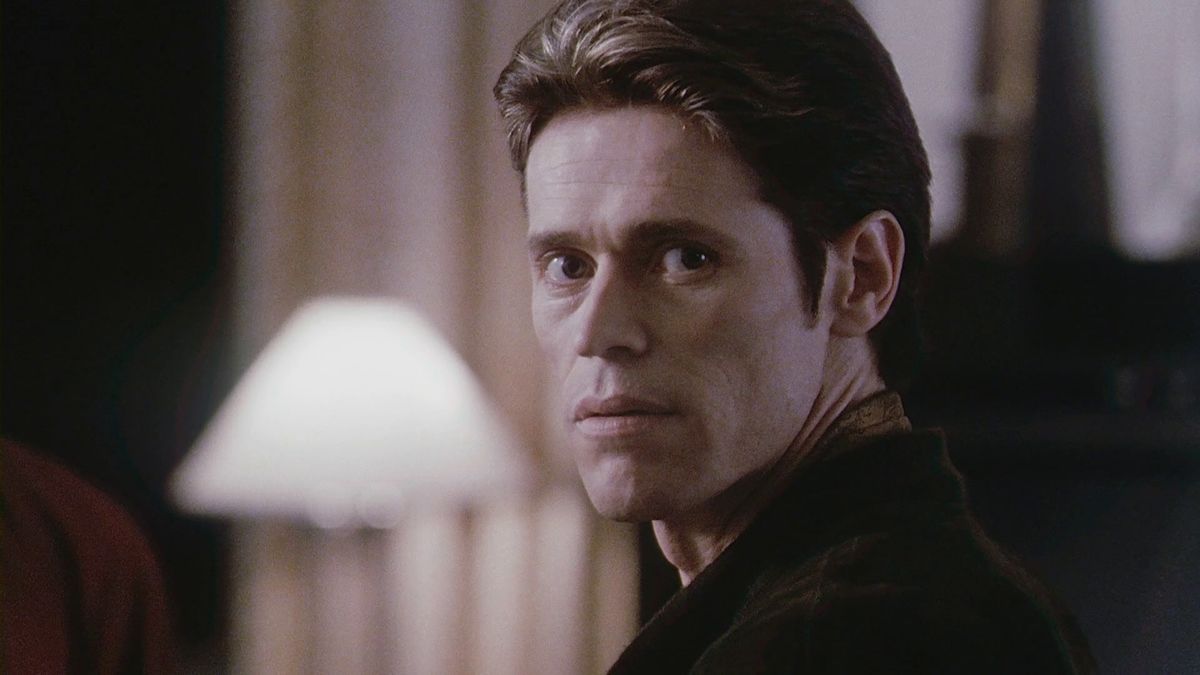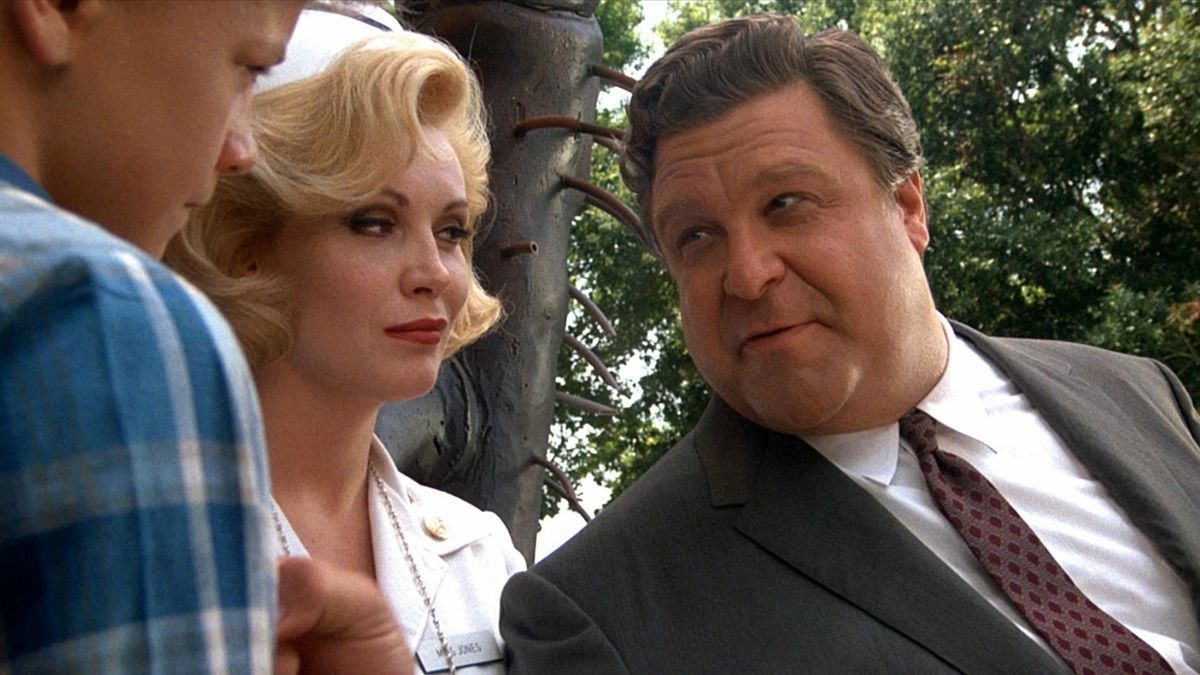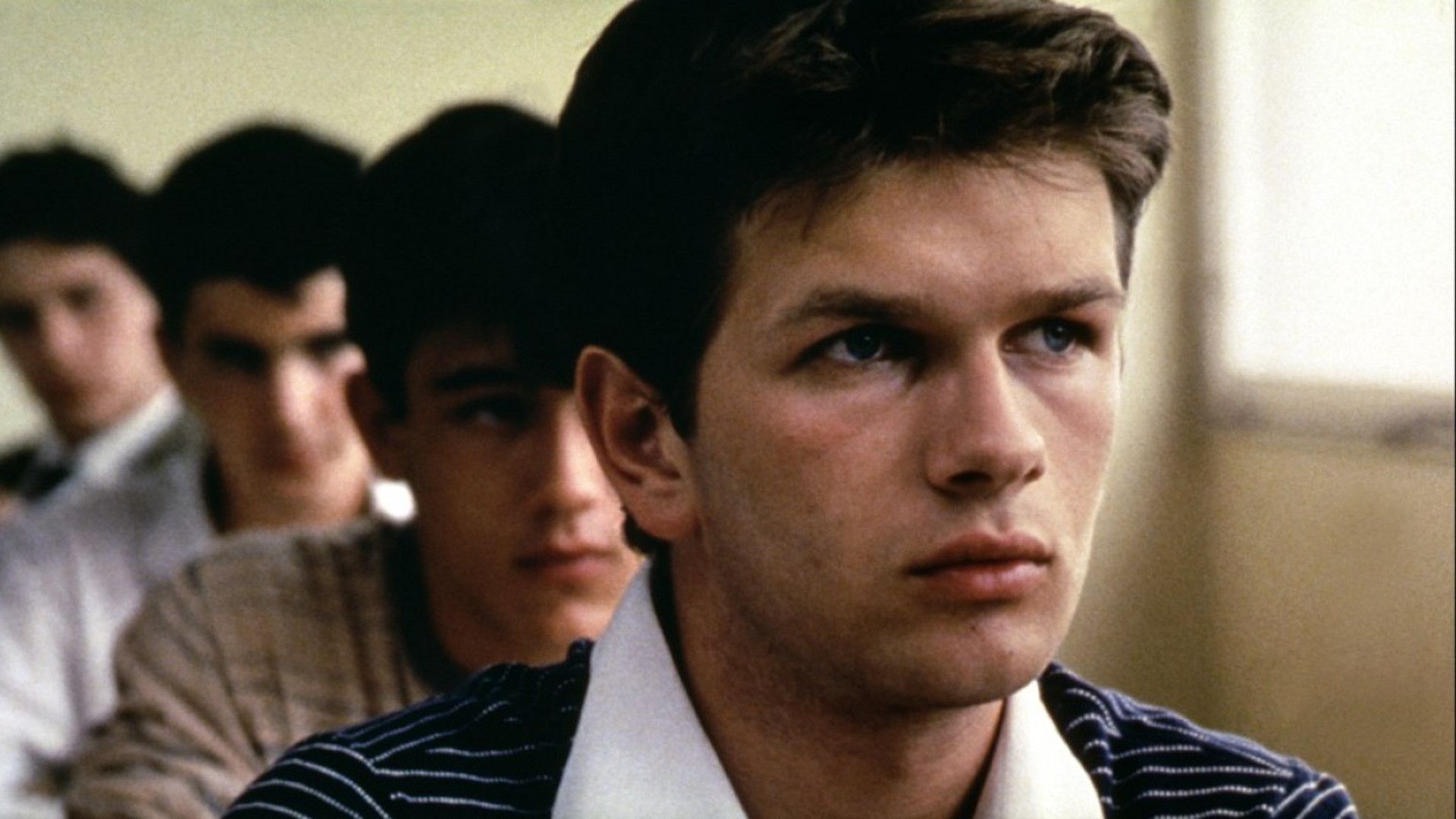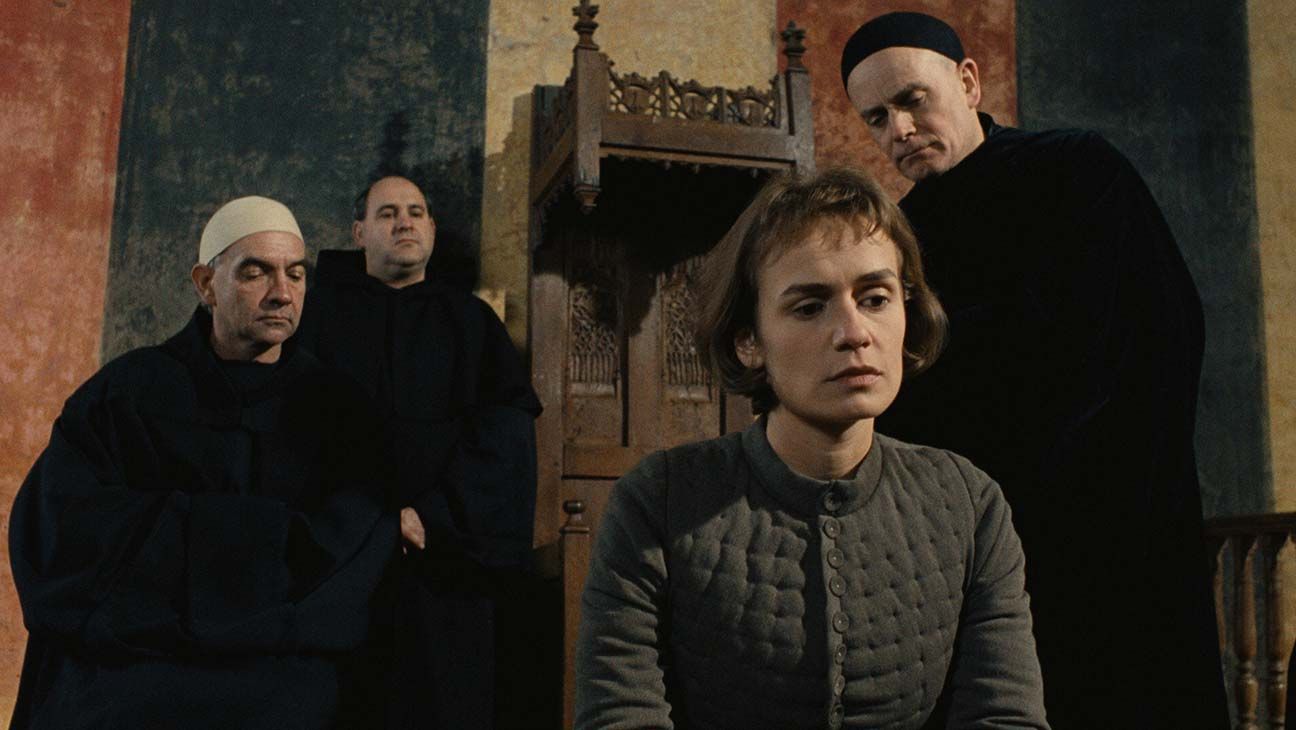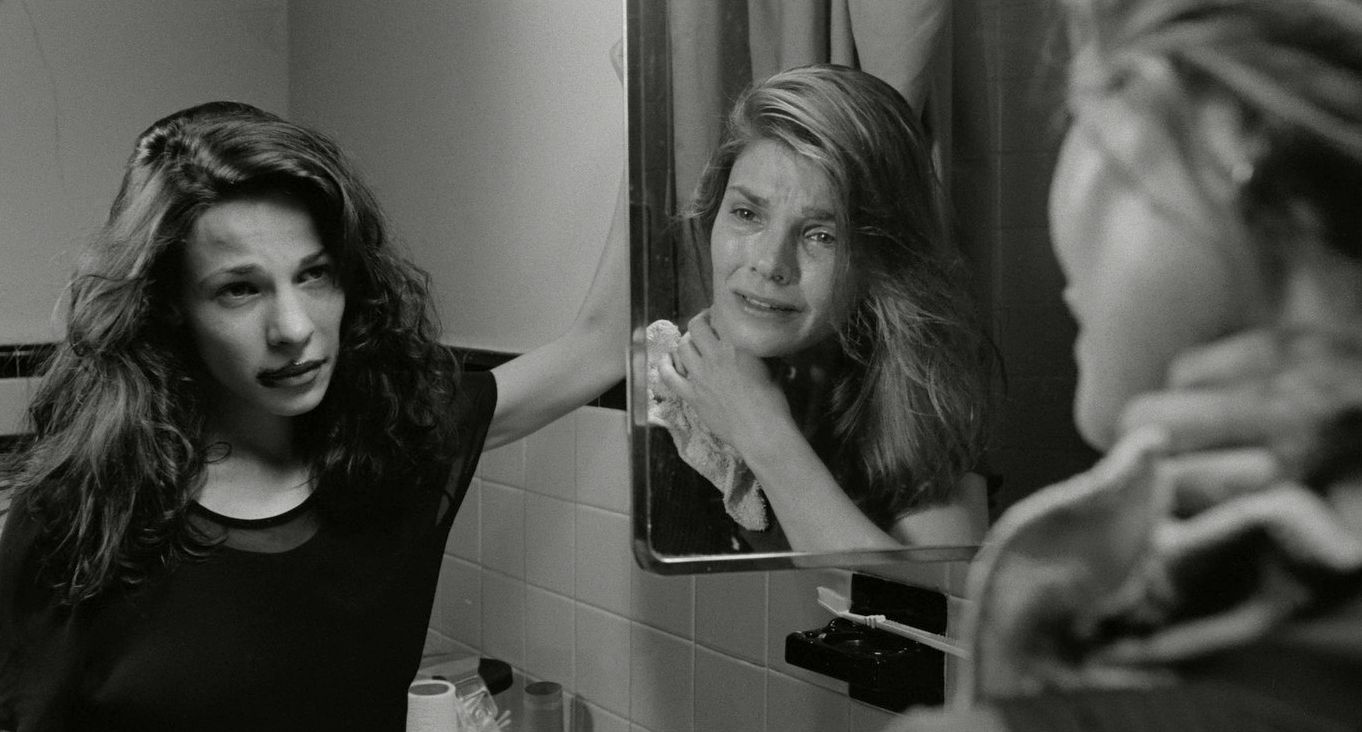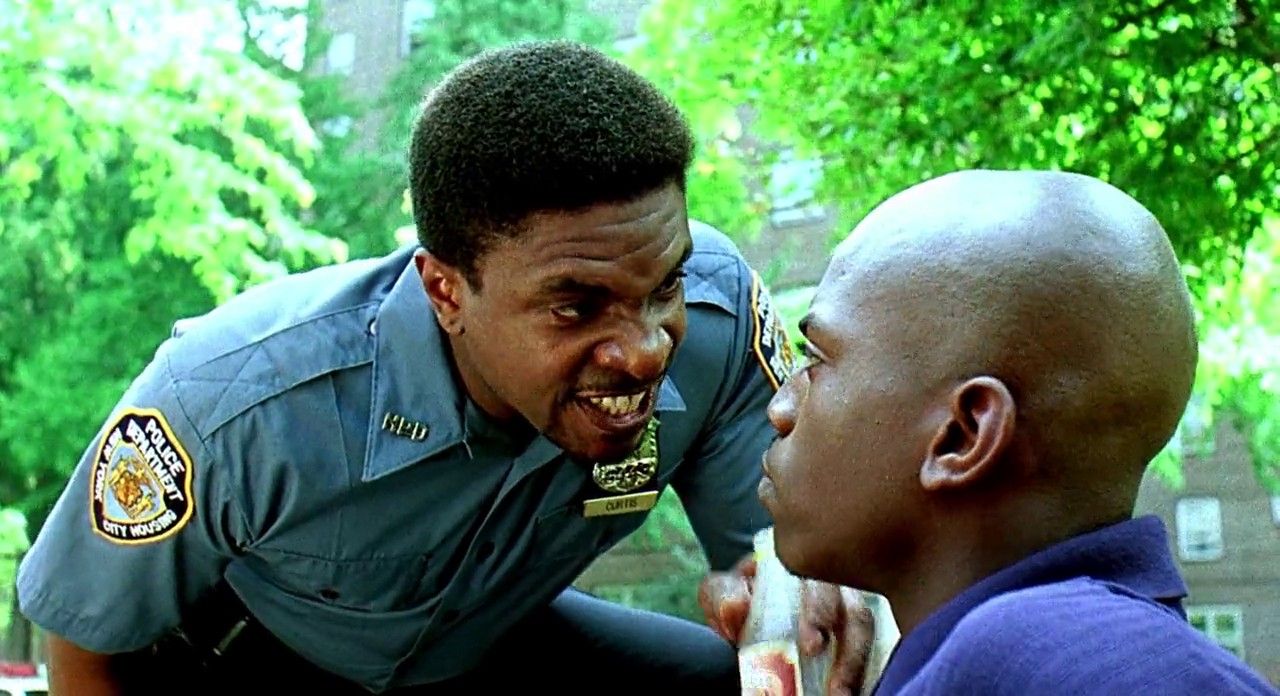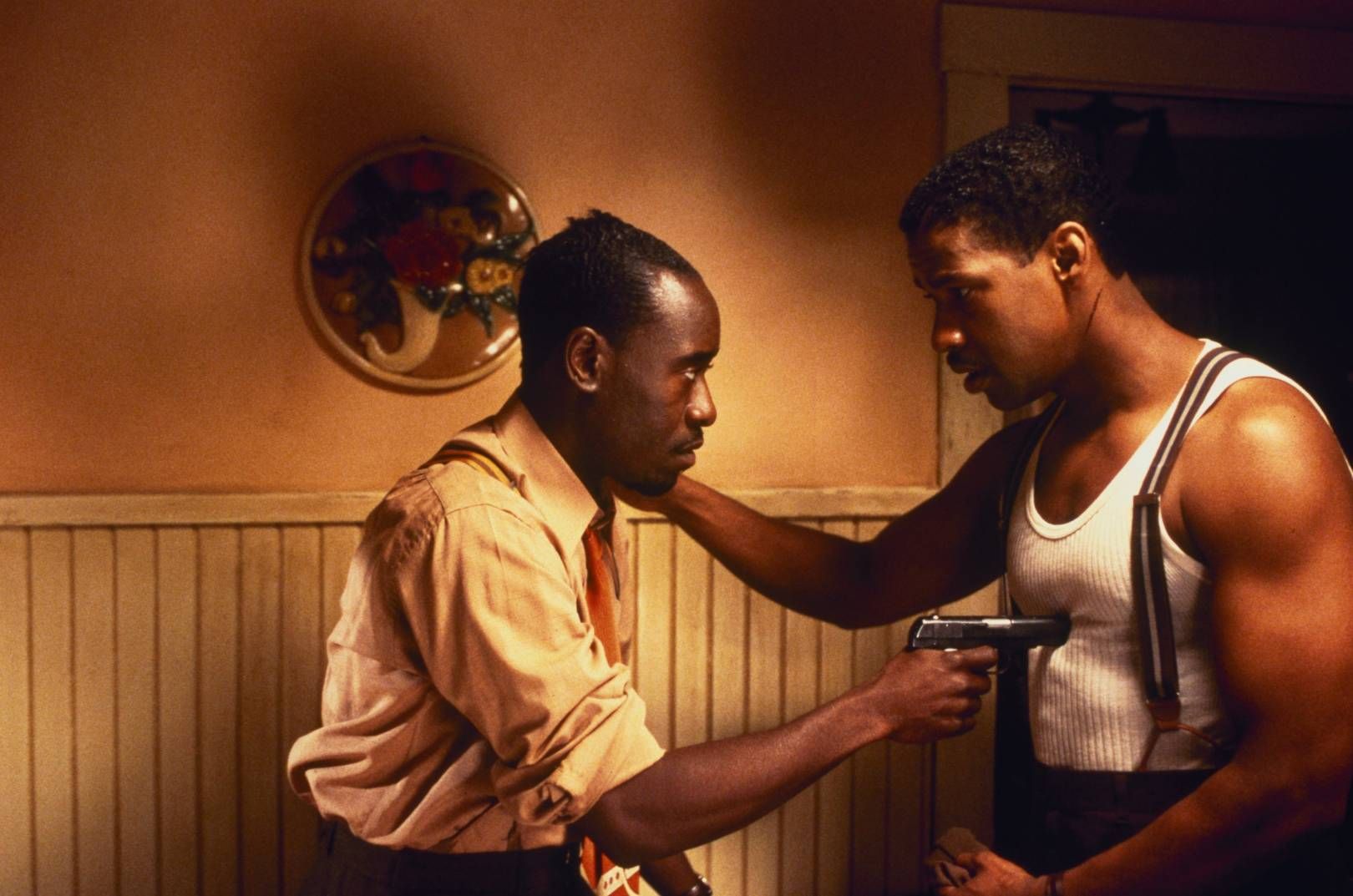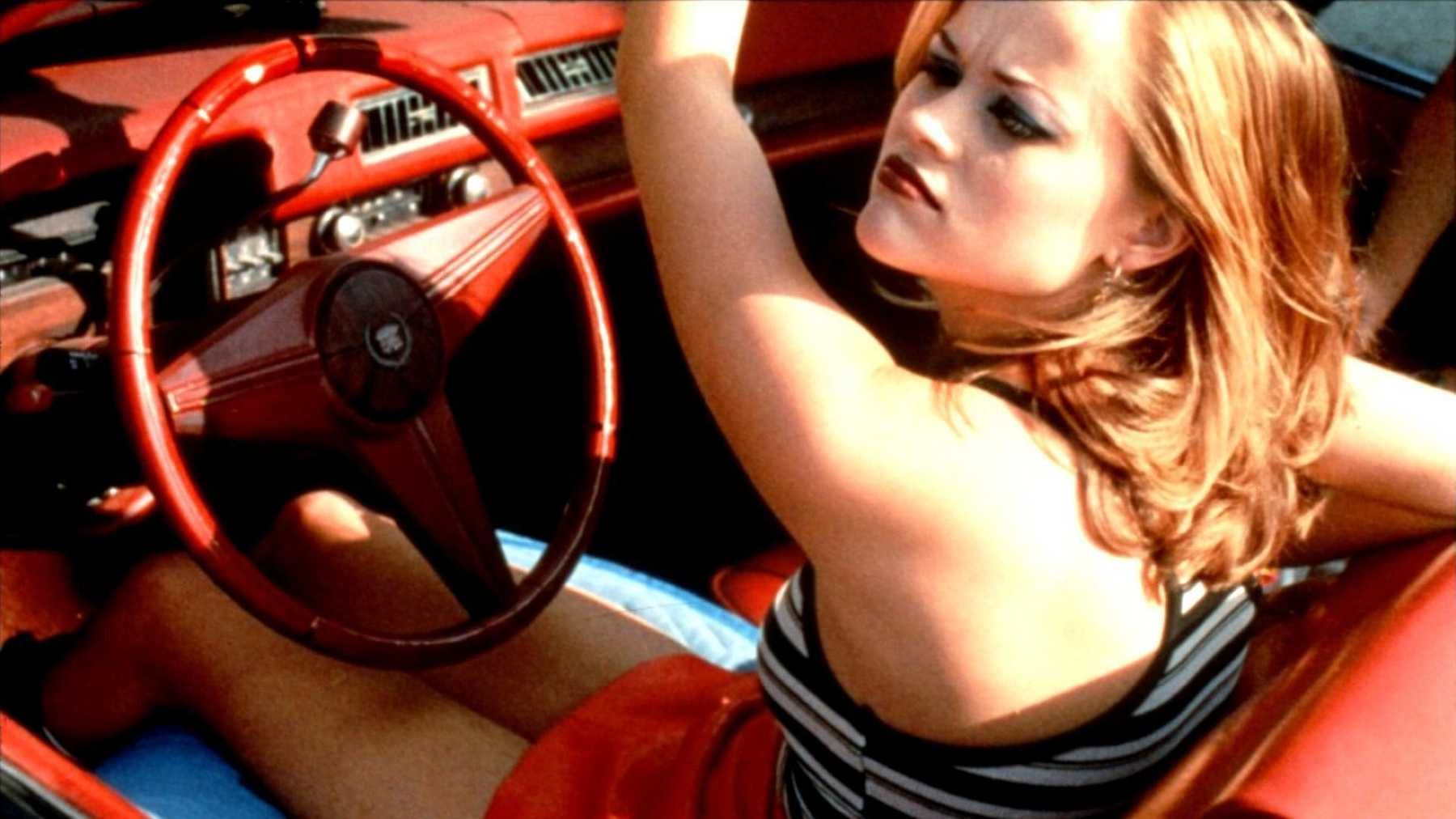Everybody has that movie that they love or greatly admire, but no one ever seems to talk about. It’s no wonder. After all, hundreds of movies are released every year; some good, many bad, and a few great, so it’s easy for quality films to slip under the radar and fall into obscurity over the years. Even when 90s nostalgia hits an all-time high it tends to be only around certain agreed upon movie titles that best represent the decade. But as any cinephile or VHS warrior knows, there's greatness to be found in the cracks.
Thanks to VOD and streaming services it’s easier than ever to access these forgotten gems, and you really should. It’s a blast, and a great reminder that movies mean more than box office and franchising. In putting together this list it became obvious that one way in which the 90s differed from the 80s was a reverberation of the effects of unchecked capitalism and gender roles that Generation X said "no thanks" to and punched the Baby Boomer generation right in the kisser. As such, satire saw a major storytelling comeback, from dirtying up fairytales to tackling the previous generation's various political scandals.
This list was started by Haleigh Foutch and the like-minded Brian Formo took the template and added a few decades—using an under 10,000 votes criteria from IMDb to unearth some truly underseen flicks for 1970s and 80s themed lists. But with the 90s being the decade that birthed IMDb that criteria wasn't used to update this list. Most everything here has under 20,000 votes on IMDb but more than half do fall under 10,000. The lone outlier and most still beloved title on this list is one of Haleigh's all-time favorites and features on of Brian's go to karaoke joints (by the Violent Femmes) so we're letting that slide. So, let us go on; 25 of our favorite forgotten 90s movies are below.
Pump Up the Volume (1990)
"Do you ever get the feeling that everything in America is completely fucked up?"
Released in 1990, Pump up the Volume is more in tune with 80s cinema than 90s, but it’s just too damn good and too neglected to leave off the list. From writer-director Allan Moyle, Pump up the Volume is the unsung sibling film to his revered cult classic Empire Records. The film stars 90s ultra-babe Christian Slater as Mark Hunter, a socially awkward and extremely bright high school student who “can’t talk” to the people he wants to in his real life, so he takes to the air waves with a pirate radio program as Happy Harry Hard-On, a filthy but eloquent voice sounding out the injustices and difficulties of teenage-dom. Shy A-student by day and rabble-rouser by night, Mark fills the airwaves with his rants against injustice, earnest attempts to counsel his listeners, and occasional simulated masturbation (he is a teenage boy after all). What starts out as a way for Mark to vent his frustrations and communicate with the world ends up sparking rebellion in his fellow students and inspiring them to change their lives.
In between tackling heavy subject matter like homosexuality, suicide and educational rights, the film occasionally veers into teenage melodrama, but never drowns in its own angst thanks to Moyle’s heartfelt script and ace performances from its young cast. Slater carries the film, balancing the wavering tones of comedy, heavy material, and Mark/Harry’s conflicting personas with ease. Samantha Mathis (who should have been a bigger star) is radiant as Nora, a clever and talented young woman who seeks out Harry’s true identity and finds her match in Mark. Though the romantic subplot is one of the film’s weaker elements, and there’s a really bizarre amount of lip-licking before every kiss, the two share a lovely chemistry.
For a 27-year-old teen movie, Pump up the Volume holds up incredibly well. Themes of teenage alienation and disaffection are bound to stay relevant, but the ideas the film puts forth about shared community are oddly even more pertinent in our Internet age. Here we are, able to instantly connect with nearly anyone the world over, and yet we feel as isolated as ever. The themes remain so applicable that Pump up the Volume is practically begging for a remake with a Hard Harry spouting his anthems from a podcast or YouTube Live, or any of the new ways we clamor to connect. Not that I want to see that happen; it’s just probably going to. You’ve been put on notice. Talk hard. — Haleigh Foutch
To Sleep with Anger (1990)
"You got to work at evil."
You've probably heard the advice "don't go to sleep with anger." The characters in Charles Burnett's To Sleep with Anger have to sleep with anger because a long lost family friend has shown up and refuses to let sleeping dogs lie; he digs up old ills and turns a family household in on itself—merely by testing their politeness. That friend is Harry and he's played with charm by Danny Glover because Danny Glover is a charming actor. At the height of Lethal Weapon fame this is Glover at his most likable. Who wouldn't let him in if he came knocking at your door?
Harry's presence at an old friend's house in Los Angeles is like a ghost from the past of the rural south. You can take a friend out of the south, but they'll still attempt to retain that southern hospitality as long as possible. And drifters know how to ride hospitality to the end of the line. Harry is a drifter. He knocks on the door of Gideon's home and he looms over the child who answers it. There's something surreal to a child about a stranger at the door that's invited in. We tell our children not to talk to strangers but we invite anyone to stay with us whom we've not seen for years, even though years of separation can make people strangers again.
Harry says he'll stay for a few days, but he's there drinking and playing cards much longer; he questions the masculinity of the men in the family and brings up old grudges that everyone but Harry has buried—but it's always done with a smile. Eventually, Gideon (Paul Baker) and his family begin to suspect that Harry is the devil himself. To Sleep with Anger is the most Southern film that's not set in the South and it's the closest film to achieve magical realism without actually engaging with any magic. It's a very interesting approach from Burnett to apply a type of voodoo to a film where those beliefs would be a stranger to the area. And Glover is simply magnificent. Though he wears out his welcome with Gideon and his family, he's always a welcome watch for the audience. And so goes the magic of movies: we enjoy spending time with characters we'd love to kick out of our own homes. — Brian Formo
Trust (1990)
"I had a bad day at work. I had to subvert my principles and kow-tow to an idiot. Television makes these daily sacrifices possible. Deadens the inner core of my being."
A few years before Bottle Rocket put an indie crown on Wes Anderson's head, Hal Hartley was the indie soap opera star of the working class. And Trust was his Rushmore. Hartley's characters have delusional goals because they've watched so many hours of TV and TV is a distraction from their miserable lives—but they hold everyone else to a standard that no one else is interested in meeting because life sucks. Outside of Richard Linklater's Slacker, Trust is the most Gen-X movie imaginable. Hartley takes the consumer aspects of our society and treats them as serious as Jane Austen did with feelings.
Did I mention that it's bitingly funny? The plot to Trust is almost indescribable, not because amazing things happen, but because Hartley is amused by the incredibly mundane tasks that we have to do. Maria (Adrianne Shelly) is in high school and she's pregnant. She tells her parents her plan to marry the football stud boyfriend and her father drops dead upon hearing the news. She tells her boyfriend her plan and he tells her he has football practice. After being kicked out of the house she meets Matthew (Martin Donovan) who might be a future serial killer or her soul mate. Matthew has a terrible manual labor job and his father makes him clean the bathroom for hours. These are the things that could lead him to mass murder. Or perhaps Maria and her baby will put him on the right path to being a bored stiff who has no urge to kill, but just to exist.
Scenes in Trust move with great precision where language escalates quickly and absurdly but action doesn't. It essentially operates as a preposterous soap opera without the action. Hartley's films are different types of entertainment jammed into one narrative because we're too lazy to change the channel. It's a unique product of its time and if you loved anything alternative, you've got to give it a shot. — Brian Formo
Mo' Better Blues (1990)
“I may have been born yesterday, but I stayed up all night.”
Mo' Better Blues is Spike Lee's masculine answer to She's Gotta Have It, wherein a two-timing man only needs to choose a woman once his job no longer provides him an identity. And in Blues, that man's downfall comes by association and loyalty to another man whose job it is to promote his greatness. Denzel Washington is a trumpet player named Bleek who leads a quartet with his name on it; even though they have a regular gig that's packed, his manager (Spike Lee) is probably the one holding the group back because he's not big in the business (despite his name being Giant) as he was just hired due to his friendship with Bleek; but Giant’s side debts are receiving more attention than Bleek's steady ensemble.
Mo' Better Blues is full of charisma, and jazzy peaks and valleys. Working within a jazz club and a jazz musician's bedroom is the perfect setting for Lee's free jazz camera excess; the camera spins, it glides through aisles, it drops into the garbage heap. This movie holds perhaps my favorite Lee camera moment, as the camera follows each of Bleek's two women as they enter in the club in the same red dress, pans back to Lee's manager watching them sit down, and then follows him upstairs to declare that he predicted this would happen.
But back to the answer to She's Gotta Have It, although the film exists in its own hazy bubble of brass and ass, the reason Bleek is forced to settle down is the ultimate moment of wounded masculinity: losing work. Being revered for his work is what makes Bleek appealing to enough women that he doesn’t feel the need to commit to one; but after external events knock him down, tries to choose a woman when he needs to be lifted up.
Coming after Do the Right Thing, this was the first time Lee had been given the runtime canvas to get more excessive, and he continues the narrative beyond that wounded state to show that it's acceptance of self-limitations that can create the fuller acceptance of others, and thus, a love supreme. Although the hangout portions of Blues are great (here’s the place to plug that Wesley Snipes is in Bleek’s band), it's the third act (and following epilogue) that makes Mo’ Better one of Lee's best. ~ Brian Formo
Chameleon Street (1990)
“Oh, I wish I could speak French like that.”
I've seen Steven Soderbergh's Out of Sight a handful of times and in a knockout top-to-bottom cast, Jenifer Lopez’s boss Daniel always stood out in a cast of who's who. His honey voiced/above it all reading of the line "whatever" with the eye roll and the hands up is just so goddamn perfect. Anyway, Daniel is played by Wendell B. Harris, Jr. and Soderbergh hired him because the year after sex, lies, and videotape changed the Sundance Film Festival forever, Soderbergh served on the Jury the following year and awarded Harris the Grand Prize for Chameleon Street, a film that Harris wrote, directed, starred in and produced, and also that Hollywood completely screwed him over with right after Soderbergh’s prize should’ve set the groundwork for a major career.
You see, this micro-budget film, has a Hollywood story right there: the true story of a black ex-con (Harris) who successfully passed himself off as a Detroit Tiger, a doctor, a French graduate student, and a lawyer, and even performed successful surgeries that he learned on the fly. Hollywood had a leading man remake in mind when it was purchased, it wasn’t purchased to show on its own. The film that they bought, and didn’t release, was shot like an industrial film and uses narration to fill in the gaps (but also hit you with some belly laughs). Chameleon Street lacks standard pizazz, but has an angry undercurrent on how black men have to adopt personas in order to get respect and/or equal opportunity. (Did I mention it's funny?)
Chameleon Street is quite a feat to watch today, and we're benefited by watching the 90s independent film movement unfold, as it shares some look and tone of other indie gods like Hal Hartley and Gregg Araki. But Harris beat them to the punch and suffered for it. Warner Brothers had no intention of releasing his film, just remaking it, and so the film languished in obscurity, the prize-winning videotape that followed sex, lies, and videotape that was gobbled up by lies and never saw actual distribution until Harris released it on home video in 2007. (A remake was never done either, though Six Degrees of Separation shares many character similarities and Smith was considered for the remake role.)
Street benefits greatly from Harris' voice, which stood out in Out of Sight, a syrupy tone that moves slowly; and as it moves, it unfurls. First, a hint of education in every word, and second a "fuck you" tucked away to rebut your entranced state. This is a distinctly 1990 Sundance Film in all of the absolute best ways. It's intelligent, it's personal, it's all put together by someone who had no access to Hollywood. And it features a scene where Harris is dressed up like Jean Cocteau's Beast and though he's been found out by a fellow French student that he’s not actually French, he's still in awe of the translated insult that comes his way. Instead of responding incredulously to being labeled a "skinflint transvestite" who should be drinking "lukewarm cat piss," Harris' eyes roll into an orgasmic state behind the Beast mask and he says, "Oh, I wish I could speak French like that.” True indie movie heaven. ~ Brian Formo
Blue Steel (1990)
“Police! Put the gun down!”
“Oh, get out of my face, lady!”
Blue Steel is the ultimate #MeToo movie; it comes 28 years prior to the long overdue movement, and from the first and only female director to win a Best Director Oscar, Kathryn Bigelow, who rose through the movie ranks by making "manly movies." The entire movie is about a woman (Jamie Lee Curtis) doing a job that's been fetishized to make men heroes and an affluent man (Ron Silver) who fetishizes the female cop he witnesses shoot a holdup man at the supermarket. As the man begins to stalk her, he's afforded every creepy entrance into her personal space simply because he has a great lawyer and the police department doesn't want the headache of the press if they put the dude in jail. This is the modern gender narrative that's filmed like a 70s exploitation film; all leering closeups, slow motion blood blasts, and all the microphones dialed to 11 to catch every sloppy kiss, belly button lick, and bullets that blast through a megaphone.
Right from the get go, Bigelow stages an opening gut punch. Bigelow amplifies a domestic argument that sounds very, very close to boiling over into physical abuse or worse. We hear it dialed up while Curtis walks down an apartment hallway, gun drawn. She enters the apartment and the man has a gun to a woman's head. She is able to shoot him first but she never looks at the woman who goes to collect her lover's gun and bang Curtis would be dead. Would be, because it's a simulation, the woman's gun never goes off; everyone laughs at her for not considering the woman as a threat.
The reason this opening works so well is because the sound of the argument is so intense, just peering into the doorway, gun drawn shows why movies have fetishized and built cops as heroes incarnate. It's brave to enter that situation and it's extra horrific because the anger of a man, well, you never know what you'll see behind that door. But then the extra beat that this female cop would overlook the victim and then be killed by the victim is very telling. She's out to get bad guys. But only once she's a simulated victim does she start to see victimized women everywhere. And she starts sticking up for them because the men in her department don't believe her story of the supermarket shootout because the gun wasn't found. That's just the floor of the power pyramid which takes her literally up into the NYC helicopter zone of untouchable men.
Blue Steel definitely has a few messy sexual moments but Bigelow ultimately gives a visceral tap on the shoulder of, this is consent, and this isn't. Bigelow stages many different invasions of Curtis’ personal space in which she is told simply nothing can be done. The system allows for worse things to happen to her. And when she is assaulted, Bigelow doesn't focus on that act but instead the system that silences women; particularly because this is a cocktail of silence being carried out by powerful men with badges and powerful men with money.
There's also a very funny exchange when Curtis' cop has a conversation with a man at a BBQ who is threatened by her profession, since it's usually men who have that authority. His attraction goes from red hot to downward. He asks her why she would do it and she says, "because I like to bang heads against the wall." The man then says he has to leave and she tells him to not be so serious and lighten up a little. I couldn't help but think that that BBQ conversation could've happened with Bigelow as such, "What do you do?" "I'm a film director." "Oh, so you make rom-coms?" Bigelow: "I bang men's heads against the walls." Man walks away and Bigelow says, "Relax, that's what you like to see isn't it?" ~ Brian Formo
Flirting (1991)
"It's all right, you don't have to tell me... But I think, if I liked someone enough, I'd want to..."
Watching now, Flirting has a built-in holy smokes! factor because it features very early work from future Hollywood stars Thandie Newton, Nicole Kidman and Naomi Watts and the future Aussie character actor, Noah Taylor. But John Duigan's underseen coming-of-age gem is so much more than a "before they were stars" clip show. Do you love Harold and Maude? Consider this the version of what if what separated Harold and Maude was not age but race, continents, and genocide.
Physically, what actually separates Thandiwe (Newton) and Danny (Taylor) is actually a lake that's between the boy's academy and the girl's academy of a private Australian boarding school. Danny, here's the Harold part, is an eccentric misfit who envisions the headmaster as part of the Third Reich and doesn't attempt to make any pals at school. Thandiwe is the daughter of a Ugandan diplomat who's teaching at an Australian university because his opposition to the new Ugandan government has made him unwelcome. It's 1965 and the rock-and-roll radio invasion has found its way to this distant school across a much larger pond, where caning is still a regular part of discipline and dance attendance requires a haircut. Thandiwe is drawn to Danny because he has a rebellious spirit. He rows across the lake after midnight to flirt with her, she hides in the boys bathroom when she stays past curfew. It's a very sweet courtship, but what makes it different here than any other similar film is that a conflict in Africa determines how long they'll actually have to spend together. It's a continent that young rebels had never really given much thought to at the time and everything that Danny learns is new. Not just kissing, foreplay or sex, but entirely new ideas of democracy, globalization, and revolution.
In addition to this fractured globe love affair that's played out across a lake, what makes Flirting extra special is that Duigan understands how complex teenagers actually are. In a lesser film, the mean girls who at first tease Thandiwe will get meaner and the boy who bullies Danny for his stutter will turn him in for leaving late at night to lay down with Thandiwe. Instead, the at-first icy Nicola (Kidman) and the bully reveal themselves to have layers and compassion for their fellow students' plight. That compassion doesn't come from an a-ha speech, but just small and natural moments where they choose to not stop the lovebirds. It's an awareness that the world is bigger than them and for this couple it's a world that's actually keeping them apart, but has somehow thrust them together for a brief moment. Flirting is a lovely film that any fan of the above actors or the coming-of-age drama needs to seek out; though it's been repackaged to look like an early Kidman vehicle, this is the rare "before they were stars" film that will actually lift your spirits to the stars. — Brian Formo
The Man in the Moon (1991)
"I wanna know you more... I wanna know you all I can."
A 14-year-old Reese Witherspoon falls in love with a neighbor boy (Jason London) in this note-perfect coming-of-age drama. She’s taking her first steps toward womanhood and becoming a woman also means dealing with jealousy. When her sister (Emily Warfield) falls for the same boy (which is a more age appropriate circumstance — but try telling that to a 14-year old) it tests her resolve. The Man in the Moon was the last film directed by Robert Mulligan (To Kill a Mockingbird) who, though northeastern bred, seems most at home in the deep south.
The Man in the Moon isn’t a film full of sweeping romantic moments, but instead awakens the strange feelings of first attractions and how everything feels amazing and awful all at once. When Dani (Witherspoon) asks her sister how to kiss a boy, her sister shows her how to practice on her hand. The romance here is in the teenaged practice to receive it. And practice makes perfect. — Brian Formo
Jamón, Jamón (1992)
"You won't be famous. Unless your balls make you famous."
There are three businesses in the sweaty Spanish pueblo depicted in Jamón Jamón: there’s the underwear factory, the ham factory, and the whorehouse. Sound like a set-up to a joke? It is. But there’s more. The town has a billboard of a bull whose testicles are so large they can be seen from miles away. The sun rises and sets, casting shadows from two big balls.
Conchita (Stefania Sandrelli) has some pretty big balls, too. She’s not too happy that her son, José Luís (Jordi Molla), has impregnated Silvia (Penelope Cruz). For no underwear magnate son of hers will marry the daughter of a prostitute. Conchita hires a hunk at the ham factory, Raúl (Javier Bardem) to seduce Silvia away from her son. But then that’s complicated when Conchita decides that she wants Raúl, too. Those are the basic ingredients for a hammy (guilty pleasure) melodrama. The characters are hungry for sex and power—and all of the town's industries partake in animal flesh.
A delicious taste is damn near impossible to capture on screen. But an orgasm isn’t. Director Bigas Luna combines those two often: taste and sex.
The double ham is Silvia, who is renowned for her omelets: both the breakfast she makes and her breasts, which her lovers say taste like a ham omelet. When the men visit the brothel they explain that they’re hungry. There metaphors everywhere in Jamón Jamón; you know those billboard testes will eventually get castrated; two men (let's call them pigs) fight to the death with big shanks of ham. Jamón Jamón is most delicious when it provides a dash of foreplay. Such as when Raúl inserts a garlic clove into a pig’s anus prior to one of his many sexual conquests. Afterward he’s gonna slaughter that pig, put it in an omelet and it’s going to taste just as good as his lovers body. — Brian Formo
Just Another Girl on the I.R.T. (1992)
The other day, I was on the number 2 train with my friends, just buggin’ out, having a good time, and people started starring at us like we were some sort of street girls with no future. Yo, when I’m with my friends, I act like it don’t matter, cuz it don’t! But between you and me, that shit pisses me off. When they think they can just judge you by the way you dress, uh-uh! I always get As and Bs in all my classes. I’m the best student in my calc class! People be trippin’ when they find out how smart I really am.
Just Another Girl on the I.R.T. is Leslie Harris’ only film and it’s a damn shame, but at least with one film she gave us an instantly memorable character for anyone who sees it. Chantel (Ariyan A. Johnson) is a hip, outspoken, and immensely intelligent Brooklyn teenager. She’s also black and her friends are black and though she can fire back at the preconceived notions of people on the train who don’t even know her, she also knows she faces extra external challenges to meet her goals without accepting compromises. Chantel wants to go to medical school, she wants to raise a family, and she wants to escape the Brooklyn life that her friends have accepted as their only option.
Chantel speaks the truth in every class and Harris’ film is alive with immense energy and awareness of expectations; individuality doesn’t need to be shoved down in order to defeat expectations, but rather to flourish in their natural pluralities. I wish this were the 90’s teen hit it deserves to be. ~ Brian Formo
Deep Cover (1992)
“Money doesn't know where it comes from, but I do. If I keep it, I'm a criminal. If I give it to the government, I'm a fool. If I try and do some good with it, maybe it just makes things worse.”
Deep Cover starts and ends with blood money. Crumpled and ugly, handed over. Director Bill Duke and Laurence Fishburne, who plays an undercover cop, charge head first into a Deep State drug conspiracy. "Follow the money" is not only the proper way to investigate but it's the thesis of the entire film. A lot of what happens in Cover's undercover portrayal is a visual re-enactment of Fishburne's famous Boyz N the Hood monologue about why there's a liquor store on every corner of a black neighborhood. But as angry as Duke and Fishburne's undercover cop are that drug arrests over-target black neighborhoods, the thematic arc of the film isn't identifying race as what needs to be overcome but poverty. “Stay black” a high roller says and the black barkeep replies, “stay black? How ‘bout stay off crack?”
Deep Cover's police work starts and ends with being asked the difference between a racial epithet and a racial identity; Fishburne's answer to that question at the start gets him a job but after what he sees on the streets and from his superior (Charles Martin Smith) he changes his answer and it signifies his mistake at the beginning. Whom he looked down upon, he then becomes. So if identity is flexible—and as stated, his distrust of authority/"criminal traits" were as strong as his "police traits" thus making him a good candidate for undercover work—then the only thing that's constant in modern society is money. What you have of it, what you lack of it. And then, once you have it, what you do with it.
Obviously, we live in a world of systemic racism and sexism and power structures that either maintain that order or flexibly change it. But money is post-racial. Fishburne works undercover with Latin drug dealers and a white lawyer (Jeff Goldblum) who money launders for them; any level of distrust amongst them is primarily work ethic, what brings in money. They do not discuss race as to why someone should be whacked, it's because they're not pulling their share or they rest on their laurels—their money—instead of getting even more.
Deep Cover is a pulsing and angry movie. Sometimes that anger pushes the blood of the narrative to different corridors, but it's very intelligently tethered to a single through line: follow the money. From crumpled up and bloody $5 bills to a van full of cash at the docks. Every bit of currency is all you have in the world and all you leave behind.
Finishing with Dr. Dre's first post-NWA single "Deep Cover (187)" over the credits, Duke’s film is angry about the past, present, and future. The more we allow money to maintain power structures the less we know of the potential outcome and the more maddening the poverty that's forced on others becomes—it just becomes a gulf between humans. It's $5 covered in blood or a van full of millions and very little in between. ~ Brian Formo
Passion Fish (1992)
“I didn’t ask for the anal probe.”
Despite an overbearing electric guitar as the soundtrack (particularly egregious during the opening credits), John Sayles' Passion Fish has aged like the finest of wines. A movie where characters get to make decisions and have monologues and just plain exist before we learn about their past histories and how that echoes in the present. Does Alfre Woodard, playing nurse to an alcoholic wheelchair-bound former soap opera star (Mary McDonnell), become a stereotypical early 90s black character? Yes and no. Yes, she does have a past that the movies were very interested in at the time but Sayles lets her introduce herself and stake a claim in the story as an individual with enough character beats that when her past is revealed; it's quite a blessing to think back on how much runway she was given so as to not be defined by the reveal but only to have that become seen as a shadow that follows her but does not define her. Instead it's the white woman who is introduced entirely through her faults and has to slowly reveal her humanity.
Pepper in David Strathairn as a Cajun handyman and one dazzling monologue about an anal probe (delivered by one of McDonnell's soap opera friends about an early audition; subtext: our expectations are routinely never met but still giving it your best is the road to contentment) and voila!Sayles' film is a slow cooker of character moments, less interested in revelations but more in how company is so vital to our life force, especially when needing to start anew.
No one asks for the anal probe. But sometimes, we just get it. This level of thoughtfulness (and ability to embrace some crude humor from time to time without being tied to it) and openness to just sit with women is the American indie that became what’s defined Pedro Almodovar’s second half of his career. ~ Brian Formo
Light Sleeper (1992)
“I feel my life turning. All it needed was a direction. You drift from day to day, years go by. Then a change comes. I am able to change. I can be a good person. What a strange thing to happen, halfway through your life. What luck.”
Paul Schrader has profiled many avenging misanthropes, most iconic among them is Travis Bickel in Taxi Driver. In that film the socially unrefined loner openly wishes for a great rain to wash away all the filth in New York City: the pimps, the prostitutes, the drug pushers, etc. 15 years later Schrader is here to atone that stance by focusing on a drug dealer who's actually a good guy, damn near a Robert Bresson priest stand-in, in Light Sleeper.
Willem Dafoe's John LeTour makes hand-to-hand deals with upper-level buyers. He was once an addict, he's gone straight on taking drugs but began dealing as a way to feed his habit and thus, as he's approaching 40, it's pretty much all he knows how to do. The party is over. And we get the sense that LeTour doesn't remember much of it, asking his boss (Susan Sarandon) if they ever had sex in previous years. "We tried," she says, hinting at intoxication. He was married to a woman that he did drugs with. He remembers their good times but she reminds him that he once left for three months and only called her once.
Despite the looks backwards, Light Sleeper isn't a morose film. For a movie about a drug dealer coming to terms with his past it's surprisingly peaceful and delicate. Much of this is attributed to Dafoe's discreet and alluring performance, Sarandon's sass, and Schrader's decision to let the movie play out like a waft of cigarette smoke spiraling up into the air. Less a spiritual sequel to Taxi Driver, and more so a look at someone who must've spent time in that very gutter that Bickel wanted the water to wash away, Schrader starts the film with some dialogue about how the NYC sanitation workers are on strike and there is garbage strewn in the streets and alleys. John routinely uses cologne to cover the smell around him, applying more as the film goes on, routinely hearing comments about his flowery smell. He is close to emerging from this business clean. He sends money to his sister. He attempts to reconnect with his ex-wife. He visits a fortune teller. He keeps a composition notebook of physical traits. He delivers drugs. And he buys CDs (when Dafoe and Sarandon have dinner together to discuss her attempts to get out of the trade and into cosmetics, she asks where all of his tax-free money has gone and it's delightful how her face lights up and she says CDs at the same time as Dafoe; I miss the 90s. All my CDs are now gone, but damn, so much money spent on those discs).
Similar to Taxi Driver, this does conclude with a violent ending, but this one is hopeful, not heroic. Perhaps it's Schrader being older, but there's a believable warmness between Dafoe and Sarandon and even though the final 15 minutes of this movie are very similar to Taxi Driver it feels as if this one is aware that humanity is more believable than heroism. ~ Brian Formo
Matinee (1993)
"You make the teeth as big as you want, then you kill it off, everything's okay, the lights come up... "
One of the many under-loved classics by the great Joe Dante, Matinee is a charming and delightful coming-of-age comedy that taps into national hysteria and a deep love of cinema. Set during the Cuban Missile Crisis, at the peak of nuclear fear, the film centers on Lawrence Woolsey (John Goodman), a B-movie producer who brings his latest creature feature "Mant" (an atomic mutation of a man and ant, naturally) to Key West where he meets his biggest fan, high school student Gene Loomis (Simon Fenton). Gene is a movie buff and a sci-fi fanatic who considers Woolsey a great man. He's also a kid terrified by the threat of nuclear war, afraid for his Naval officer father, and is coming to terms with his own hormonal advancement (a bomb itself).
Woolsey is all about showmanship, realizing that the age of American innocence is over and audiences need a (sometimes literal) jolt to the system to get scared at the cinema. He rigs the entire theater with gimmicky tricks including electric buzzers in the seats, waivers releasing the theater of any legal liability in the the event of a heart attack, and a man dressed in a Mant costume that jumps out to fright the audience. The movie within the movie, Mant, is affectionately made and it’s clear that Dante has a lot of love for the kitschy creature features of yesteryear. Woolsey, too, shares this obvious love of cinema, a genial man who enjoys his work and gets a genuine kick out of thrilling his audience.His Saturday showing of “Mant” brings the town together in a culmination of their nuclear anxieties and they youngsters brimming hormones. The audience is putty in Woolsey’s hands as their fear of human annihilation and nuclear mutations drives them to the peak of hysteria—with a little help from Woolsey’s tricks.
Dante locks up the resolution sweetly, tying together the threads of impending doom and hormonal maturation in a culminating set piece that’s a dream for any movie theater junkie like myself. Matinee is a lovely little film that manages to capture the innocence of a time long past. It’s not a laugh-out-loud comedy, but it is a feel-good treat that will put a broad smile on your face. — Haleigh Foutch
Wild Reeds (1994)
"You think you're smart but you're just a tacky Tarzan."
Andre Techine is one of the most interesting voices in queer cinema because he frequently shows how closely related the emotional response of revulsion and arousal are within sexuality, regardless of orientation. And consequently, how heterosexuality and homosexuality are always close to crossing currents, particularly in the younger years. Wild Reeds presents the difficulty of finding comfort with arousal from both genders at the forefront of a coming of age story that's also bubbling with ideological influences that are constantly changing around the French-Algerian War. If ideological ideas of nations and war consistently change, why can't the ideas of sexuality be just as fluid?
It's 1962 and four teenagers are struggling with nationalist and sexual identities in the idyllic French countryside. Francois (Gael Morel) realizes his homosexuality with a new student, Serge (Stephane Rideau) in a late night study session that will not be repeated, but will change Francois forever. Francois' next obsession is Henri (Frederic Gorny), who was born in Algeria and is pro-France's governance of the Muslim country; meanwhile Serge, whose brother just died after being drafted to fight in Algeria, has set his sights on Francois' best friend Maite (Elodie Bouchez), who has secretly been in love with Francois since they were children. She identifies as a Communist and resists the advances of Serge, but she is drawn to Henri despite despising his political ideologies.
In this four-way quandary of potential sexual pairings, all have reasons not to lay together; in the pairings that do occur, the lingering attachment exists for one party alone, the other vowing not to repeat. Each student is trying on sexuality with the same clumsy beginners approach that students attempt in trying on ideologies. A Communist might become a Socialist or a moderate liberal and someone who's pro a France-Algeria union at one point, still has the ability to change stances with new information that guides their feelings. Why shouldn't our genitals be allowed to do the same? — Brian Formo
Joan the Maid (1994)
“Men think that because they pump a few times to create life that they are the makers of the world, when it’s a woman that keeps the seed alive.”
Jacques Rivette and Sandrine Bonnaire partook in a two-part film concerning two distinct chapters in Joan of Arc’s life: what led her to suit up for battle and how she carried herself in prison before her trial and execution.
Though Bonnaire puts on armor and learns to joust and orders legions into battle, what The Battles mostly concerns is Joan of Arc’s battles with men to defeat their egos by massaging their egos. Rivette isn't concerned with whether or not God actually spoke to her, indeed her conversations are more observed by people around her who describe watching her tranquility by the fire, listening; instead, Rivette shows how she was able to win over so many men by coming at them directly: you are the rightful king, she tells the Dauphin, whom has been waiting in exile to hear that; the men enjoy her sleeping beside them because it makes them feel special to be lying next to a beautiful virgin who desires to go to battle, she even giggles at their impure thoughts which gives them shame and they'll use that to go to battle for her when the English call her a whore. Rivette even shows Joan of Arc as a bit of a bully, pushing men around until they fall into line. She's unlike any woman they have encountered and they like the approach.
Although presented as matter-of-factly as possible and without rising adventure, there's delicate reverence and folly at play in Battles. And Joan isn't presented as a martyr but rather as someone who is convincing in her beliefs, young in her energy, and how that combination grants her access to men who've felt long defeated by the English and needed someone to stir their self-importance. Indeed, she's able to make everyone around her feel important, whether it's the would be king, or her Uncle, or a local nun, which is aided by her belief in the guiding hand of God. For a time, she stayed amongst the men because you don’t shoot the messenger when the messenger is there to exalt your higher place in society.
Still, despite the focus on ego massage, Rivette inserts direct messaging that societal order has been centered around men unfairly. But as it was ordered as such, this was how Joan the Maid was able to gain access despite societal rank and gender, by appealing to one man's ascension to govern.
We know that Joan of Arc will eventually be burned at the stake, but that's only four minutes of this 5+ hour dual movie. That runtime is meant to show Joan of Arc’s life, deeds, and conviction but it's also meant to show how men behave around her and that because they've assumed all roles of power—courts, priesthood, bishops, governors, kings, etc.—what irks them most is that she refuses to wear a dress. And in those five hours we see Joan of Arc command an army, stroke the ego of a would-be-king, bully men and women alike, all while wearing a top and a bottom.
The potential voices that she hears isn't the problem by the time Rivette and Bonnaire take us to The Prisons, it's that a woman has inserted herself within a French-English truce and that's not something that a woman should do. Her final undoing is putting back on her "male outfit" simply because the English guards have used her pariah status as providing them the freedom to chain her, molest her, and degrade her. During those uncomfortable scenes she is in a dress and she resorts to retrieving the outfit that afforded her some respect, or at least not this type of treatment. And thus, Joan the Maid, taken on a whole is a double feature in which we all know what is coming but with its five-hour runtime it's actually an epic dissection of despicable and frequent "she had it coming" narratives. For once she is in a dress and once the men have a narrative of who she is, a virgin who "hears voices," then those men who label her as beneath them then think they can do whatever vile thing they think of. Joan remarks that this treatment wouldn't happen if she was in a prison with women guards, or at least a woman's presence in a church prison. Because she is now in a dress—she is chained, what was promised to her is unfulfilled, and a "she deserved it" hangs in the air of every imaginable action. She is burned at the stake for refusing to go back to the dress. And the men, who hold all positions of power during this discussion, see that as her heresy, nothing to do with hearing voices from God, but disobeying their control of her body.
Bonnaire crafts a magnificent performance across two films; in Battles, she is perfectly poised and stoic with just enough girlish traits (like kicking her legs as she talks in one scene, or giggling at a man’s lascivious conversation in another). She has conviction and charm. In Prisons, though the torment in the final moments is not as intense as the classic silent film, The Passion of Joan of Arc, Bonnaire plays it differently, also not looking at Joan's potential insanity for tics in her performance, but instead as firm, until the very end. ~ Brian Formo
The Addiction (1995)
"We're not evil because of the evil things we do, but we do evil because we are evil."
In The Addiction, Lili Taylor—one of the indie queens of the 90s, now most known for the clapping game that conjures spirits in The Conjuring—stars as a philosophy student who’s hungry for knowledge before she gets bit by a vampire in a New York alleyway and then gets “the hunger” for blood. It’s become pretty chic to investigate the negative aspects of eternal life in recent times, but Abel Ferrara’s sparse, black and white film definitely grapples with the most issues, using a vampiric newbie to explore religion, drug dependency, rape and the AIDs epidemic. Luckily Taylor encounters a silky-tongued Christopher Walken—as a nightwalking spiritual guide—who gives her a lesson on how to adapt to her new affliction. The Addiction is extremely academic, but though it waxes philosophical, it’s got a specific digestible rhythm that wouldn’t turn off the non-Jean-Paul Sartre inclined.
At the center of The Addiction is the idea of how we always change our philosophy of life to better serve our current circumstances—whether it’s addiction, a reaction to trauma, the economic discrepancies in a cosmopolitan city, or sudden and unexpected vampirism. — Brian Formo
Clockers (1995)
"It's motherfuckers like you who robbed Rosa Parks."
On a basic story level, Spike Lee's Clockers is a whodunit concerning drug-pushing corner kids who hang at benches all day under the watch of the neighborhood kingpin, Rodney Little (Delroy Lindo). When a night manager at a take-n-go eatery gets shot four times, the older brother, Rocco (Isaiah Washington) of one of the corner kids, Strike (Mekhi Phifer), confesses to the murder. But detectives Rocco Klein (Harvey Keitel) and Larry Mazzilli (John Turturro) think he's covering for his younger brother in an attempt to get him to wake up and distance himself rom Little; the detectives believe that Rodney and Strike killed the man as an initiation to move up the chain.
Clockers was originally set up for Martin Scorsese to direct but he ended up passing the project onto Lee and became a producer. Lee, working for a script from the novel's author Richard Price, flipped the original POV from Klein to Strike and the resulting story became immensely more interesting than a standard procedural mystery. Strike, though in his late teens, is often shown playing with trains during his downtime and drinking chocolate milk to ease his ulcer pains. These could be easy props to show that Strike is a youth who happens to be stuck in this violent circle, but Lee uses it to introduce the thought that neighborhoods that are overtaken by drugs make it so that a young man rarely advances past young interests because they're hardened to believe that they have no future.
But Lee isn't content on making Strike a mere victim who had the deck stacked against him. While the investigation swirls around Strike, Lee features two side characters who serve as a confrontational chorus for Strike. There's the beat cop, Andre the Giant (Keith David) and the mother (Regina Taylor) of a neighborhood child that looks up to Strike, who lecture Strike about the detriment he's causing the community by sitting on a bench all day open for business. Taylor gives one of the all-time greatest single-scene performances and David, lean and fierce, gives one of his fieriest performances as a cop who's disgusted that Strike doesn't even know who Rosa Parks is. Though these characters lecture like a Greek Chorus, they're not painted as saints, but rather that they're imparting wisdom but are also flawed because they don't listen to the response. The older generation experienced the Civil Rights Movement and witnessed an incremental movement of change and are expecting the next generation to step up, but are also oblivious that that change stagnated and helped create a system of inequality that's damn near impossible to escape a neighborhood without having to participate in what earns that neighborhood money; a vicious cycle has been created and it's extremely hard to escape.
Choosing to shoot from Strike's point of view gives extra tension to the investigation because ultimately you're hopeful that Strike isn't culpable. It's a difficult task for Lee to make Strike sympathetic while also presenting that he could be a killer and Strike is indeed flawed and impish, but it's a viewing experience that makes Clockers unlike other films of its ilk. Ultimately, Clockers would be devastating no matter the outcome of this case. And that's the point. That tightrope moral balance and a superb cast makes this the most underrated film in Lee's oeuvre. — Brian Formo
Devil in a Blue Dress (1995)
“A man once told me that you step out of your door in the morning, and you are already in trouble. The only question is are you on top of that trouble or not?”
Devil in a Blue Dress works magnificently as a film noir, but what truly makes it soar is how it gives us a new prism to look through. It's another 1940s Los Angeles potboiler, but when this movie's femme fatale (Jennifer Beals) tells the private investigator, Ezekiel "Easy" Rawlins (Denzel Washington) that her hotel is “whites only” and to use the service entrance in order to meet her, that's but one example of how deprived the whole detective genre has been of diversity. There are numerous instances in which Carl Franklin sprinkles this in as lived-in, not with a hammer over the head. There's a running joke about Rawlins' protecting his home from a gardener he has not hired, but who attempts to do some work without being seen, to try to force payment later. Rawlins frequently aims his hose at this man, or berates him in the street. But it's Washington's stern pride that makes these scenes work, because unlike many of the black sections of town that he goes to investigate the missing woman, Rawlins is a home owner and his home is guarded not just because gangster toughs and the police are coming by to rough him up, but because it's a symbol of his hard work; he's a black home owner in post-WWII Los Angeles.
The central mystery as to why the woman ran away from her would-be-mayor boyfriend is secondary to the tapestry within Franklin’s deft storytelling: different rules for different races. And unlike L.A. Confidential, its closing shootout doesn't feel like an attempt to wrap up the plot neatly, but rather something necessary for the characters to do because the police have already been established as an oppositional force.
Franklin also expertly introduces Don Cheadle's iconic character, Mouse. Mouse is mentioned in passing by Rawlins a few times, but never in a way that his presence feels close, and when he arrives he's the perfect, classic third-name-in-the-credits film noir hothead. It's truly a crime that we didn't get more Rawlins and Mouse movie pairings from Walter Mosley's books, as Washington and Cheadle act circles around most every neo-noir film of the 90s. It's also a shame that Franklin's been in TV jail for almost the entire 21st century. His first two films, this and One False Move (almost made this list), are tensely plotted and magnificently acted. His career reveals that for Hollywood, it truly is one false move when it comes to black directors, where hacks-for-hire can always get a new gig but one perceived misfire from a minority is impossible to overcome.
As for Washington, this is one of his best performances, and though Washington never starred in a sequel until The Equalizer 2, his Easy Rawlins should've been his Philip Marlowe. He's steady, prideful, has the warmest and widest grin of any man ever put on celluloid; the defining moment for Washington's performance is his sex scene. While his friend is passed out drunk, Rawlins and his friend's wife have sex in the parlor, she been coming on to him all night, but when she stops in marital shame mid-coitus, Washington pleads with a quiver of bewilderment. We never saw Marlowe, or Spade, or any of the 40s stars have to beg for it; they’d just give a facial gesture with a cigarette hanging out the side of their mouths and turn off the lights. Different movie rules for different times, too. ~ Brian Formo
Freeway (1996)
"I'm pissed off and the whole world owes me."
Every time I watch Freeway, I can’t believe what I’m seeing. Gaudy violence, raunchy antics, and Reese Witherspoon, America’s sweetest sweetheart, dropping F-bombs like it’s her sworn duty—all of it so in your face that it’s easy to miss the fact that the film actually does a pretty damn good job at depicting the hopelessness of underprivileged kids who enter the system too young.
An exploitation style retelling of ‘Little Red Riding Hood’, Freeway follows Witherspoon as Vanessa Lutz, a headstrong, foul-mouthed illiterate high schooler who goes on the run when her cracked out mother and lecherous stepfather are arrested for solicitation and possession. Rather than entering foster care again, Vanessa hits the road to find her long lost grandmother and start a new life, until her car stalls on the side of the freeway and the proverbial wolf in sheep’s clothing, Bob Wolverton (Kiefer Sutherland), a serial killer and necrophile, offers her a ride. Bob presents himself as a soft-hearted youth counselor, cleverly extracting Vanessa’s darkest secrets and most perverted stories of abuse, before Vanessa catches wise to his game and turns the tables faster than you can say, “What big teeth you have.” From here, the film takes a left turn at every opportunity for conventional narrative, which manifests itself most obviously in the moments where you expect Vanessa to be victimized.
For all the talk these days about “strong female characters”, Vanessa Lutz is the real deal in the midst of all these trashy shenanigans. She’s fearless, self-reliant, and against all odds, always in control of her own fate. She operates solely on the basis of her own agenda, takes shit from no one, and ain’t no trick baby. She’s also occasionally terrifying. When Bob picks up this spunky little blonde he has no idea he’s finally met his adversary.
I’m keeping this one brief because I don’t want to spoil the twists and turns of this wildly outrageous movie for those who haven’t seen it, but the fallout from their encounter leads to all kinds of fucked up directions. It’s the blackest of comedies, completely degenerate, utterly twisted, and often laugh-out-loud funny. — Haleigh Foutch

